LISTSOur biweekly lists lay out notable issues in the news and tell you what you can do about them.
|
SUBSCRIBE TO EMAIL UPDATES:
|
|
1/20/2022 2 Comments A Message from Teens ResistDear Teens Resist community,
We’re reaching out to announce an indefinite hiatus on Teens Resist content. We know that we haven’t been in touch for a while, and for that, we apologize. In full transparency, we were transitioning from high school to college, and thinking through what Teens Resist will look like amidst that transition. We’ve arrived at the decision that, unfortunately, Teens Resist can’t be maintained right now in the way that it deserves to be. Teens Resist staff writers have always been expected to step back once they graduated high school, and we have held that expectation for ourselves, too; for us, a big part of the framework of Teens Resist has been that it is created by-and-for high schoolers. We found that, partially due to the pandemic, we didn’t have the infrastructure in place that would allow Teens Resist to continue smoothly after we stepped back. We choose the term indefinite hiatus intentionally, because we still believe deeply in the mission behind Teens Resist and the impact we saw in the years it was active. It’s possible that later down the line, there may be a right time to pick it back up in a different (or similar!) format. There is also so much content on our website that we believe will continue to be helpful for young people looking to make a difference. It will serve as a living testament to what we worked towards during a singularly chaotic presidency. On that note, we want to highlight and celebrate some accomplishments, as well as some of our favorite resources on the site. With your help, we were able to reach over 30,000 visitors on our website, thousands of Instagram followers, and hundreds of email subscribers. Most importantly, we published 81 lists, and hosted over 15 in-person and remote workshops for young people about political advocacy. All of the content we published will remain up on the website. To check all of this out, you can look to the archive of all our past lists, and our Index by the Issue, which has all of our lists organized by topics they cover. (If there’s a topic you are particularly interested in now and you want to learn more about its recent history, the Index could be a great resource to check out.) We also have many feature-style lists with more general background information and action steps for certain issues. And we continue to be proud of our Basics page, a perfect place to start for anyone unfamiliar with the process of contacting representatives. We also want to express our deepest gratitude for the amazing staff writers that helped build Teens Resist and produced incredible content over the last four years — this would not have been possible without them. They volunteered so much time and talent to help other teens make a difference. We’d also like to thank everyone who supported us along the way: every organization we worked with, everyone who wrote guest posts, and every person who sent a list they especially loved to their friend. We have learned some valuable lessons during our time running Teens Resist. Among them, that young people have so much passion and drive when it comes to the hard issues: their capacity to take action should not be underestimated. On a more personal note, TR played a really formative role in our lives — particularly in how it shaped how we think about political organizing as centered in community and small-to-large action. It makes us sad to let TR go for now. It is an indescribably gratifying feeling to know that any resource we made may have helped someone learn more about the world around us and their role in it. We’re so grateful for all of your support and hope that you continue to fight the good fight. Peace & power, Sonia and Kate
2 Comments
Hi Teen Resisters! We hope you're doing well. This list mainly covers a few of the recent police killings and protests surrounding them. We have both actions related to the specific cases as well as more general policies and actions on the issues. This list got a little delayed, which just means another list in a week instead of 2 weeks-- get ready for more action :) As the New York Times has said, a primary emotion of right now is languishing. We hope you're making it through that languishing and getting excited for more sunny days ahead. Remember to take care of yourself and those around you! Peace & power, TR Before you dive in: 1) Some good news: The Biden admin’s ambitious vaccine timeline is going much faster than anticipated. Check on progress here, and look forward to (hopefully) better days ahead. 2) Quick Action: Tell the Biden administration to end the destructive Title X gag rule Trump’s gag rule on Title X, which he implemented in 2019, banned health care providers in the Title X funding program nationwide from giving patients full information about how they could safely and legally access abortion. The rule disproportionately harms communities who already face systemic barriers to health care — people in rural areas and people of color, for example — and takes away those people’s ability to maintain their reproductive and sexual autonomy. Submitting a comment is even more directly impactful than signing a petition; federal agents are required by law to review every comment that is submitted. That means the more you personalize your comment (whether with statistics, anecdotes, or your personal perspective), the better. Submit a comment here (the comment is pre-written for you at this link, and you can add whatever you want). WHAT WENT DOWNFollowing a pattern of systemic racist violence in the U.S., police have committed multiple killings of Black and Brown people over the past few weeks — reigniting nationwide anger and protest. SAY THEIR NAMES:
Daunte was the devoted father of a two-year-old boy, Daunte Jr. Family and friends remembered him for his outgoing nature, smile, and bright demeanor. (As a freshman at Thomas Edison High School, he was voted a “class clown.”) At his funeral on April 22, Reverend Al Sharpton gave the eulogy: “You thought he was just some kid with an air freshener,” Rev. Sharpton said, “He was a prince, and all of Minneapolis has stopped today to honor the prince of Brooklyn Center.” WHAT YOU CAN DO TO SUPPORT DAUNTE’S COMMUNITY:
Adeena Weiss-Ortiz, an attorney for Adam’s family, has said that Adam ”loved going to the park,… was a young uncle,… was an emerging artist… He liked playing cards, biking around the neighborhood with his little brother and [making] Lego creations.” Weiss-Ortiz emphasized understanding Mayor Lori Lightfoot’s and others’ connections to cycles of violence in Chicago and the dangers of the streets, while also acknowledging that “Adam was your typical 13-year-old boy.” Adam’s mother has been emphasizing the same thing: “He is being remembered by his mother as a loving and caring teenager with a big imagination, curiosity and someone who could make everyone laugh.” WHAT YOU CAN DO FOR ADAM’S COMMUNITY:
WHAT YOU CAN DO FOR MA’KHIA’S COMMUNITY:
Major Upcoming Legislation: George Floyd Justice in Policing Act of 2021
WHAT YOU CAN DO:
WHAT CAN YOU DO TO ADVOCATE FOR MORE LONG-TERM CHANGE? The problem of police brutality in the United States is pervasive and systemic. Black and Latino individuals are far more likely to be stopped and killed by police than others; 1 in 1000 Black men will be killed by police in their lifetimes. The rate at which people are killed by the police in the United States puts it on the same level as countries often described by human rights campaigners as “police states” — Egypt and Iran, for example. There is little doubt that there is a clear and persistent problem of systemic racism within the police system. There are a few routes we can take to address this problem-- some would suggest attempting to purge the police system of that racism and bias; however, research suggests that tactic simply isn’t working. Many of the reforms meant to “root out” racism in policing, such as anti-bias training, body cameras, punishing killer cops, de-escalation training etc., were adopted by the City of Minneapolis before and after the murder of George Floyd last year. George Floyd and Daunte Wright still died. Many attribute this failure to the fact that racism isn’t simply present in policing — it is its basis; the institution of policing in the United States began as slave patrol. Additionally, American society itself is racist, raising people with implicit bias that is extremely hard to get rid of, so arming those people and giving them the power to kill based on their own judgement is inherently risky. The communities in the United States with the least violence are the ones with the most resources, not the most policing. Surface level-reforms tend to divert more money towards, not away from, institutionalized police systems. On the other hand, calls to defund the police and reallocate that funding to community resources, as well as bigger social safety nets like healthcare, food, and housing, help us look toward a future that doesn’t see a faulty system of policing as the answer to all of our communities’ problems. We’re including below some resources to explore related to this idea, covering ideas and visions both small and big about our future. Reform vs. Abolition: Resources to explore
There are a multitude of local community organizations and campaigns doing local work surrounding police brutality and mass incarceration in their communities. Here are just a few examples:
More action:
This list was written by Ananya Gera, Kate Griem, Sonia Chajet Wides, and Sarah Germana.
Hi Teen Resisters! Hope you and your loved ones are staying safe & doing well. This week's list covers the new Georgia voting law, Before you dive in, we wanted to draw your attention to a few quick things:
Take care of & be kind to yourselves if you are feeling exhausted, hopeless and/or burned out. (As the NYT recently wrote, We Have All Hit a Wall.) Thank you always for all your amazing work! Peace & power, TR what went down
The results of these changes are predicted to include much longer wait times and less access to voting in more urban areas such as Atlanta, which have a higher population of Black people and are also majority Democratic. By getting rid of the ability to bring snacks and water, the policy discourages people even further from waiting in line. Republicans have focused the branding on the voter ID part of the policy-- which is supported by the majority of Americans for its seeming common sense, but in reality, is a policy that will create new inequities because of ID access, and isn’t necessary at all because voter fraud is so incredibly low. The policies all fit into the long history of voter suppression in America (read more history from us here). The main policy meant to protect against laws like this is the Voting Rights Act of 1965. Prior to 2013, one of the most important sections of the VRA was Section 5, which required a certain group of states with histories of voter suppression (including Georgia) to get pre-clearance from the Dept. of Justice on any election-related changes. A Biden DOJ evaluation would have likely stopped this new Georgia law in its tracks. Unfortunately, in 2013, the Supreme Court struck down Section 5 in the infamous Shelby v. Holder case; the justification that Chief Justice John Roberts used in his opinion was that the pre-clearance policy was no longer necessary, and could not justify disparate treatment to states. At the time, Justice Ruth Bader Ginsburg dissented by saying that the fact that preclearance seemed unnecessary-- that voter suppression had gone down-- was just proof that it was working, and taking it away would be foolish. She was, of course, correct. Now, the main function of the VRA in opposition to laws like this, is Section 2, which prohibits any election practices that discriminate on the basis of race. The problem with this is that it is based on proven effects, not pre-clearance, and so usually Section 2 lawsuits (many of which have been filed for this law) take years and elections to complete. The John Lewis Voting Rights Advancement Act intends to repair the damage done by Shelby v. Holder by circumventing the parts of Section 5 that the Supreme Court deemed unconstitutional and reinstate preclearance. We will give resources to push for this act in the action section. There has also been an outbreak of protests in opposition of this law. There have been boycotts on companies that stayed silent during this process. This has pushed many businesses to take a stand and speak out against the suppression this law promotes. Yet, the fight is not over. All across the state, people are voicing this disapproval of the new voting law and are attempting to hold big corporations accountable to receive more support from more powerful industries. WHAT YOU CAN DO (for now):
As the movement’s website explains, the pandemic has led over two million women to leave the workforce to care for their children. Direct payments to all, it claims, are the best way to help these families until they regain a stable source of income. The proposal has been quite popular, with many famous and powerful figures backing the idea. Among them are celebrities like Stephen Curry, Eva Longoria, and Charlize Theron, and politicians like Amy Klobuchar and Andrew Yang. What led to this movement, anyway? The pandemic has hurt almost everyone economically, but the movement especially reflects the U.S.’ inadequate support for families with children. Key welfare programs like universal child care, pre-kindergarten, and paid parental leave are unavailable to them, despite being a mainstay in other developed countries. In the past year, over 2 million women left the labor force and millions more cut back on their hours; many of them are moms who did so to pick up the slack of caregiving that resulted from remote school. This has particularly affected moms of color and low-income moms. Our society expects moms, and women in general, to pick up caregiving needs in times of crisis, and the pandemic is no exception. These articles explain more:
WHAT YOU CAN DO:
WHAT YOU CAN DO: The need for food insecurity assistance in New York is more dire now than ever. To contribute to this amazing project find a Community Fridge below using this locator map. If there is not a community fridge near your home, do what many other volunteers have and start your own community fridge! If you would like to donate food, money, or time to a Hunger charity click on a link below: This list was written by Ananya Gera, Christopher Giang, Samantha Desch, Kate Griem, and Sonia Chajet Wides
Hi Teen Resisters, These past weeks have had a lot of scary events. We hope that you are taking care of yourselves and staying safe. We're focusing most of this list on resources related to the wave of anti-Asian hate sweeping the country right now, including the horrific shooting in Atlanta last week. We've linked a ton of resources for action, donations, etc., in different categories. We also want to note the mass shooting in Boulder, CO this week. It occurred in the final stages of publishing this list, so we don't have extensive action yet, but we will link these pre-existing resources:
We're sending you love and light amid these difficult times and also reminding you that hope is truly on the horizon. Peace and power, TR what went down
While both the President and Vice President have condemned the shootings, along with Long’s church, there is still so much more to be done on a broader scale. You can check in on those in your life who are affected anti-Asian racism and offer support, but never force someone to have a conversation they don’t want to have. Stop AAPI Hate is one of many organizations working to document and prevent anti-Asian racism. They have resources including reporting forms and safety tips available in multiple languages. They also have a Public Accommodation Law Survey document where you can check what protections exist in your state. The National Asian Pacific American Women’s Forum has petitions along with educational resources as well. Action Items:
Resource hubs:
Organizations to donate to and get involved with:
Amidst everything, the government has introduced a crime bill, the sweeping Police, Crime, Sentencing and Court Bill, which would give police significantly more power in their response to nonviolent protests and demonstrations. Yet this approach is exactly the opposite of what lead activists in London are looking for. As evidenced by Everard’s murder, police can be and often are perpetrators of violence against women. Many women don’t feel any safer — or even feel less safe — while in the presence of police. Considering this newly sparked cultural firestorm, there has been significant pushback against the government’s solution of increasing police power. WHAT YOU CAN DO:
This list was written by Leo Levine, Sonia Chajet Wides, Hailey Dickinson, and Kate Griem, with org contributions from Nicole Kim. And, before you go....
Hey Teen Resisters! Hope you and your families are safe and well. We'll keep our greeting short this week, since we have a lot to cover. We break down the reopening of facilities for unaccompanied minors, the filibuster, the Ultra-Millionaire Tax Act, the recent Syria airstrikes, a stimulus update, and the Background Check Expansion Act — and provide tons of easy action for you to take to impact them — below. Happy reading/calling/signing/activisting! Peace & power, TR What Went Down
It is through this part of the immigration system that the Trump-era policy of separating families and detaining them in cages occurred, and it is also through this part of the system that deportations and raids occur. CBP and ICE also control most detention centers, where adults and families without visas are held when they are trying to come to the United States. The other part of the system is the Office of Refugee Resettlement (ORR), which is responsible for people classified as refugees and, notably, unaccompanied minors who arrive at the border alone. ORR is run by Health and Human Services (HHS) and is, as Morales Rocketto describes it, “the gentler immigration agency.” Mark Weber from HHS said that the Biden admin is “moving away from the ‘law-enforcement focused’ approach of the Trump administration to one in which child welfare is more centric.” (Washington Post) When unaccompanied minors arrive in the United States, they are typically housed by the government before being reunited with sponsors, typically family members or friends who already live in the US (Axios). While the children stay in the shelters, ORR works with them “to identify and conduct background checks on the sponsors,” and then the children are sent to live with their sponsors. Last month, the Biden admin reopened two facilities for unaccompanied minors (the first of the administration) that they said needed to be reopened due to limited capacity from COVID in other facilities, as well as an uptick in unaccompanied minor arrivals. Again, these facilities exist to house unaccompanied children before they can reach their sponsors in the US. One of the facilities, Carrizo Springs in Texas, is run by HHS/ORR and a nonprofit contractor, which, as Morales Rocketto puts it, “are better than ICE/CBP by a long shot.” Carrizo Springs was previously and similarly used as a “temporary influx shelter” (Forbes) by the Trump admin in summer 2019. The other facility being reopened is in Homestead, FL. The Homestead facility is different because it is run by a for-profit organization under the parentage of Caliburn International, which has former Trump Chief of Staff John Kelly on its board. Homestead was shut down during the Trump administration after a lot of organizing, because its conditions were discovered to be extremely bad. At the time of Carrizo Springs’ closing, Denise Bell of Amnesty International USA said, “These temporary emergency facilities arose because of the government’s deliberate policy to punish children, resulting in the prolonged and indefinite detention of thousands of children… Temporary emergency shelters are never a home for children.” Emergency shelters have been the subject of criticism from immigration and human rights advocates for years due to their often shoddy conditions, cost, and lack of transparency. It is important to recognize the differences in these parts of the system if we hope to change those systems. The emergency facilities are different from Trump-era detention centers and their cages, because these children are not being processed through CBP/ICE, and have not been forcefully separated from their families. The cages are gone. The facilities do have the intention of “caring” for children before they reach sponsors, and include more amenities. Under the current system, the facilities also prevent children from ending up in CBP facilities like they were in 2019. Biden has said that he hopes the facilities won’t stay open long. However, activists say that the conditions are far from fully humane in these facilities, and, for reasons such as cost and lack of transparency, are a bad start to the Biden admin’s policies, which promised to innovate. Additionally, it seems like bad judgement to reopen shelters used by the Trump administration, and therefore create a visual connection to that administration’s immigration policies, famous for their cruelty. “The system is built on jailing families and children,” Morales Rocketto writers, “The only way to fix this is to change the system.” Advocates and lawyers have noted that the emergency shelters are often in remote areas away from public view. The Biden admin has inherited a “poisoned” immigration system and has a big task ahead of them: to redesign the refugee and asylum system. Immigration advocacy groups such as Detention Watch advocate that we must stop detaining families and children to transform this system — not just stop separating them. You can read a document from them explaining this here. Linda Brandmiller, a San Antonio immigration lawyer, told The Washington Post that the Biden administration “should not be reviving old systems but looking for new solutions.” As immigration attorney and former Congressional candidate Jessica Cisneros puts it, “This shouldn’t be framed as: keep kids confined in tents or send them out to the streets by themselves unsupervised… there are and will always be alternatives to detention.” Many have also noted that an uptick in unaccompanied minor arrivals is likely because families have been deterred from arriving together as a result of the Trump-era family separation policies and a history of family detainment. Immigrants often believe that to send their children alone is the safest option. As with most immigration-related issues, there are root causes that must be addressed. There are a few things we can ask of the Biden administration right now:
For more information:
WHAT YOU CAN DO:
Since that era, Senators don’t actually have to maintain active debate on the Senate floor to prevent a bill from going to vote. That means you can filibuster a bill without grinding all other legislative procedures to a halt, and it’s much less of a public spectacle. Under these rules, filibusters are easy and painless to use — and have been used often. They were the tool Senate Republicans used to thwart or compromise nearly every part of Obama’s legislative agenda: immigration reform, climate action, the Affordable Care Act, and Dodd-Frank. Republicans also used the filibuster the shrink the size of Obama’s 2009 stimulus package — sound familiar? The filibuster is extremely relevant in this political moment. It’s thanks to the filibuster that Congress had to pass the Covid stimulus, the American Recovery and Relief Plan, through budget reconciliation — a process not subject to the filibuster. This categorization forced Democrats to knock off the $15 minimum wage provision from the package. And unless abolished or reformed, the filibuster is sure to be a huge roadblock to other elements of the progressive agenda, like H.R.1, the For the People Act, which packs dozens of democracy reforms, or sweeping climate legislation like the Green New Deal. You might wonder — is the filibuster only a bad thing when the good guys are in power? There is always the risk that Republicans might be able to pass more bad legislation in the future if a Democratic minority couldn’t filibuster it. But that hypothetical isn’t enough to balance the concrete imperatives of this moment. Our country needs big changes, now, and we know that the filibuster is in the way. In any regard — no matter how control of Washington might oscillate over time — the filibuster is an antidemocratic, antimajoritarian institution. It allows a minority of representatives, who could very well represent an even smaller minority of the American public, to paralyze legislation supported by the majority of our elected representatives and, in many cases, this country’s population. In a country where Democrats consistently win the popular vote in national elections, it’s also not surprising that minority rule is Republicans’ cup of tea (think gerrymandering — or the composition of the Senate, where members of smaller, Republican-leaning states are overrepresented). But when Democrats are the majority, we want to be able to rule by majority. WHAT YOU CAN DO:
The bill was introduced March 1 by Senator Elizabeth Warren and Representative Pramila Jayapal, along with fellow progressive Senator Bernie Sanders and a number of other Democrats. Wealth taxes were a big part of both Warren and Sanders’ campaign platforms in their run for president in the 2020 Primary Election, and Warren proposed this policy in 2019 as well. The COVID-19 pandemic has emphasized and made worse the wealth gaps that we were already seeing before the pandemic. These gaps have never needed to be addressed as much as they do now, so what can you do to help? WHAT YOU CAN DO:
The President did not confer with Congress, or much less seek congressional approval, before he launched the airstrikes against Syria. His failure to work with Congress has raised serious issues as to whether the Syrian attack violated the law and perhaps even the Constitution. Senator Tim Kaine released a statement following the airstrikes: “The American people deserve to hear the Administration’s rationale for these strikes and its legal justification for acting without coming to Congress. Offensive military action without congressional approval is not constitutional absent extraordinary circumstances. Congress must be fully briefed on this matter expeditiously.” Senator Bernie Sanders stated on Twitter. “I am very concerned by last night’s strike by U.S. forces in Syria. The president has the responsibility to keep Americans safe, but for too long administrations of both parties have interpreted their authorities in an extremely expansive way to continue war. This must end.” This episode so early in the tenure of the Biden administration has again raised the issue of whether, in recent decades, the president of the United States has gone too far in ordering military action against foreign countries without congressional authority. The Constitution establishes that war powers should be shared between the executive and legislative branches of our government, yet in recent times Congress through — legislation and otherwise — has ceded substantial power to the presidency. In 1973, Congress passed the War Powers Act, designed to limit the U.S. president's ability to initiate or escalate military actions abroad. Yet that act has never been truly enforced, either by the Supreme Court or by Congress. Senator Kaine is pushing for a new War Powers Act. He has introduced a bill in the Senate to repeal the congressional authorizations for use of the military force against Iraq made under the terms of the War Powers Act. The Biden airstrike against Iran and initially negative reactions from members of Congress may mark the beginning of further steps to restore the sharing of war powers between the President and Congress. WHAT YOU CAN DO:
And in some more major positive news, the stimulus package that passed the Senate included a student minimum loan forgiveness from taxation through Jan 1, 2026 for all student loans. The language of the exemption is broad and potentially creates a foundation for further strides in cancelling student debt. You can find more specific info on the changes in this article. Despite its many benefits, more progressive members of the Democratic party are pointing out that the bill falls short in one key place: minimum wage. One of President Biden’s primary promises during his campaign was to raise the minimum wage to $15. This is so that current college students, millennials, and others who are not making enough to positively contribute to our economy through housing, consumerism, and other facets are able to. In January, Biden released his $1.9 trillion COVID-19 stimulus package which included a federal minimum wage of $15 per hour (twice the current minimum wage) and eliminated the tipped minimum wage and subminimum wage for those with disabilities. Unfortunately, the COVID-19 stimulus package passed Saturday without the $15 minimum wage section. To push for a higher federal minimum wage look at the action below! Definitions Tipped Minimum Wage: Those who make $30 or more off of tips monthly have a minimum wage of $2.13 per hour as of 2019. Subminimum Wage: If authorized by the US govt, a company may pay disabled persons a subsidized minimum wage. WHAT YOU CAN DO:
H.R. 8 / S.529, the Bipartisan Background Checks Act / Background Check Expansion Act, would require a background check on every sale, ensuring that people prohibited from purchasing firearms cannot exploit loopholes and purchase guns through an unregulated sale at a gun show, online, or from an unlicensed seller. In addition, individuals would no longer be able to cross state lines solely to purchase a firearm in a state with less stringent background checks. Closing these background check loopholes is critical to reducing gun violence throughout the United States. Additionally, H.R. 1446 / S. 591 the Enhanced Background Checks Act / Background Check Completion Act would provide the FBI more time to complete background checks and ensure that people prohibited from possessing firearms are not able to obtain them by default because of an incomplete background check. This deadly loophole in existing law was exploited by a white supremacist who killed nine people at the Mother Emanuel AME Church in Charleston, South Carolina. Background checks are a key first step to getting guns off streets and out of schools, saving lives and preventing inarticulable grief. Gun violence is not an abstract policy idea; to America’s youth, it is imminent and urgent. Teens Resist was founded on the notion that we must fight back against the senseless devastation around us — no matter how tangled, complex, or hopeless it may seem — because the world shaped by politicians and activists now is the world in which we will grow up. We urge you to pass H.R. 8 / S. 529 the Bipartisan Background Checks Act / Background Check Expansion Act and H.R.1446 / S.591 the Enhanced Background Checks Act / Background Check Completion Act, as soon as possible. Learn more from two excellent Giffords info sheets, found here and here. WHAT YOU CAN DO:
This list was written by Sonia Chajet Wides, Lily Seltz, Hailey Dickinson, Sarah Germana, Sammi Desch, and Kate Griem.
2/28/2021 0 Comments Black History Month 2021Hi everyone! We’re closing out February with our annual Black History Month list, featuring the below piece by Tirzah Thomas (fourth year in a row!). We also want to take a moment to point everyone to some already-existing resources we have on racial justice:
How Younger Generations of Allies can be Active in the Black Lives Matter MovemenT |
| Texas Weather: This past week, citizens in the American Southern Plains saw unprecedented tragedy. Numerous states were ravaged by record volumes of snow and temperatures nearing 0 degrees, fahrenheit. Texas, especially, has borne the brunt of this extreme weather, with each of the state’s 254 counties touched by the storm. Texas is the only state in America with its own power grid; to escape New Deal energy regulations decades ago, Texas’ government isolated their electrical network from the rest of the nation. Without regional reinforcements, Texas was unable to retain widespread power in the frigid temperatures. Many natural gas suppliers and some renewable energy mechanisms, like wind turbines, froze over, and at the peak of the crisis, over 7 million Texans were affected by blackouts. |
These outages, as well as infrastructural weaknesses that fail to protect homes from frigid weather, have catalyzed an alarming humanitarian crisis. Over the course of the week, citizens were left without heat, safe drinking water, and use of most utilities. Not to mention, homeless individuals, communities in poverty, and incarcerated individuals have experienced living conditions that threaten survival. According to the Washington Post, the storm’s reported death toll is about 30 - keep in mind, no statistics are absolute at this point.
As far as government response to this crisis goes, state authorities are actively coordinating with an array of commissions to assuage concerns about water quality, establish statewide warming centers, and restore a power grid deeply inflicted by weather damage. Federally, President Biden approved a Major Disaster Declaration for 77 counties on February 20 after having declared a state of emergency days before. Local governments and tribal communities in these areas will receive supplemental economic support. And while Texas Senator Ted Cruz fled to Mexico with his family to vacation, leaders like Cruz’s 2018 Senate opponent Beto O’Rourke and NY’s Rep. Alexandria Ocasio-Cortez raised funds and volunteer coalitions to address the emergency.
Moving into the week of the 22nd, conditions (both weather-related and within the power grid) are expected to greatly improve. However, the economic, humanitarian, and infrastructural impacts of this crisis are certainly indelible. We’re not powerless in mitigating them, though.
WHAT YOU CAN DO:
As far as government response to this crisis goes, state authorities are actively coordinating with an array of commissions to assuage concerns about water quality, establish statewide warming centers, and restore a power grid deeply inflicted by weather damage. Federally, President Biden approved a Major Disaster Declaration for 77 counties on February 20 after having declared a state of emergency days before. Local governments and tribal communities in these areas will receive supplemental economic support. And while Texas Senator Ted Cruz fled to Mexico with his family to vacation, leaders like Cruz’s 2018 Senate opponent Beto O’Rourke and NY’s Rep. Alexandria Ocasio-Cortez raised funds and volunteer coalitions to address the emergency.
Moving into the week of the 22nd, conditions (both weather-related and within the power grid) are expected to greatly improve. However, the economic, humanitarian, and infrastructural impacts of this crisis are certainly indelible. We’re not powerless in mitigating them, though.
WHAT YOU CAN DO:
- Donate to Texans in need:
- Mutual aid funds throughout Texas are sending most contributions to communities in need, consolidating and distributing resources. Donate in Austin (Venmo: @austinmutualaid), Dallas/Fort Worth (VM: @feedthepeopledallas), Houston (VM: @mutualaidhou), and San Antonio (VM: @trinitymutualaid).
- Donate to a variety of grassroots groups through AOC’s fundraiser here.
- Donate to the Austin Area Urban League’s emergency fund to provide shelter to families in need. Find their site here.
- Haven for Hope provides hundreds of homeless families in San Antonio with shelter, hygiene products, and clothing year-round! Make a tax-deductible donation here.
- Texas Jail Project advocates for incarcerated people by ensuring their safety and humane treatment, pushing for criminal justice reform, and investigating unjust protocols in Texas jails. Donate here to help inmates and incarcerated individuals affected by the weather.
- Volunteer with organizations that directly coordinate with Texans.
- Share resources on social media or directly to Texans to assist them in this crisis.
- The Partnership for Inclusive Disaster Strategies is providing help to disabled individuals affected by the weather crisis. Their hotline is located at 800-626-4959.
- Located here is an interactive map of warming centers in Texas that provide heated shelter in the cold.
- Business owners impacted by the weather and power outages can register for government disaster assistance at this site.
- Here is a guide to energy conservation and mindfulness as power outages ravage the state
| The Role of Climate Change: Texas, Oklahoma, and Arkansas aren’t supposed to be under weather advisory in the winter. Still, this crisis was predictable and, theoretically, more easily manageable. The jet stream that consolidates cold air at the North Pole (within the polar vortex) was weakened by an abrupt warming of the atmosphere above the Arctic. The jet stream, which traps in the polar vortex, is less equipped to handle an unstable polar vortex. So, this cold, low pressure air can leak out, causing extreme temperatures in places closer to the equator. This event is referred to as Sudden Stratospheric Warming, and caused cold air normally sustained near the US-Canada border to spill directly into the American South. Scientists have foreseen the emergence of this phenomenon for decades. Heating in the Arctic is a direct consequence of global warming, the irregular consolidation of greenhouse gases and CO2 in the atmosphere and subsequent securing of thermal energy. |
As we know, the Earth’s climate has been continuously warming, and patterns have been scientifically confirmed in America since at least the 1950s. Global warming is arguably the most daunting existential threat humanity has faced. Research from the Intergovernmental Panel on Climate Change indicates that if sweeping, bold action is not taken to shift energy production, within a decade, there will be no way to reverse this crisis and its impacts: rising sea levels, extreme weather like snowstorms, hurricanes, and droughts alike, worsened air quality, and the extinction of numerous species.
Not-so-coincidentally, it was Texas’ - and America’s - heavy reliance on natural gases that both created their crisis and prevented a swift response to it. Coal mining and oil drilling as a means of producing energy contribute thousands of tons of carbon emissions, among other dangerous substances, to the atmosphere annually. And when freezing temperatures froze over infrastructure that sustained this natural gas production in Texas, millions lost power. Incoming generations will be left to fend for themselves in environmental conditions that simply fail to sustain life if changes are not immediately made to environmental policy.
President Biden’s platform to confront climate change is extensive. He has proposed a plan to achieve a clean-energy economy with net-zero emissions by 2050, conserve at least 30% of American lands and waters with animals at risk of extinction, and prompt shifts to electric cars and renewable energy use by airlines. On his first day in office, Biden rejoined the Paris Climate Accord and cut off permits for the development of the Keystone XL Pipeline, a vast intracontinental oil conduit. He has also appointed the first Climate Envoy and promised to monitor the environmental responsibility of corporations and the government bureaucracy. The administration has been particularly focused on the connection between green energy and the economy, and hopes to create new jobs while addressing the climate crisis. They have also promised to give 40% of the benefits that come from government investment in clean energy to communities of color—this is an important first step, as Black, Indigenous and Latinx communities have bore the brunt of pollution, pipelines, and hazardous waste. However, a lot of Trump-era policy could take years to undo.
Amidst these ostensibly decisive plans, concerns about Republican resistance to his policies and activism from more progressive climate voices indicate that Biden’s plan may not suffice. Proposals like the Green New Deal that explicitly and expansively prioritize economic justice in tandem with climate appeal to many young people, but a call to balance feasibility and policy change continues to plague leaders in Washington.
WHAT YOU CAN DO:
Not-so-coincidentally, it was Texas’ - and America’s - heavy reliance on natural gases that both created their crisis and prevented a swift response to it. Coal mining and oil drilling as a means of producing energy contribute thousands of tons of carbon emissions, among other dangerous substances, to the atmosphere annually. And when freezing temperatures froze over infrastructure that sustained this natural gas production in Texas, millions lost power. Incoming generations will be left to fend for themselves in environmental conditions that simply fail to sustain life if changes are not immediately made to environmental policy.
President Biden’s platform to confront climate change is extensive. He has proposed a plan to achieve a clean-energy economy with net-zero emissions by 2050, conserve at least 30% of American lands and waters with animals at risk of extinction, and prompt shifts to electric cars and renewable energy use by airlines. On his first day in office, Biden rejoined the Paris Climate Accord and cut off permits for the development of the Keystone XL Pipeline, a vast intracontinental oil conduit. He has also appointed the first Climate Envoy and promised to monitor the environmental responsibility of corporations and the government bureaucracy. The administration has been particularly focused on the connection between green energy and the economy, and hopes to create new jobs while addressing the climate crisis. They have also promised to give 40% of the benefits that come from government investment in clean energy to communities of color—this is an important first step, as Black, Indigenous and Latinx communities have bore the brunt of pollution, pipelines, and hazardous waste. However, a lot of Trump-era policy could take years to undo.
Amidst these ostensibly decisive plans, concerns about Republican resistance to his policies and activism from more progressive climate voices indicate that Biden’s plan may not suffice. Proposals like the Green New Deal that explicitly and expansively prioritize economic justice in tandem with climate appeal to many young people, but a call to balance feasibility and policy change continues to plague leaders in Washington.
WHAT YOU CAN DO:
- Advocate for sweeping, progressive climate legislation.
- Sunrise Movement, a youth-led initiative focused on passing the Green New Deal, leads regular volunteer programs to push for concrete policy change. Learn about their demands for President Biden here.
- Find your legislators’ contact information at these links and contact them about climate policy that matters to you. Some promising items of legislation can be found here (requiring the declaration of a national climate emergency) and here (the Green New Deal).
- Find all of our previous coverage of climate change on our Index by the Issues page.
- Change your daily practices. On an idiosyncratic level, we can seek to minimize our carbon footprints and influence those around us to trigger piecemeal progress.
- Many powerful corporations rely on natural gas for manufacturing and delivering, and in the age of burgeoning industry, greenhouse gas emissions are a staple. Begin purchasing second-hand clothing, buying from local businesses, and being mindful of the sustainability policy of brands you purchase from.
- Change up your daily energy use. If you’re able, stray away from nonrenewable power sources and invest in solar energy, electric cars, and energy-efficient appliances.
- Research what you consume! Rather than purchasing foods that have undergone immense production, look into organic options.
| Reproductive Justice Update: Some of President Joe Biden’s first actions in office have centered around reproductive rights and justice. On January 28th, Biden signed an executive order to temporarily reopen the Affordable Care Act in order to expand access to health care during the pandemic. Along with this came another executive order that repealed the global gag rule. The gag rule is an anti-abortion policy introduced by Ronald Regan and then reinstated by Donald Trump during his presidency. It prevents organizations from receiving assistance from the United States to provide information, service, or referrals for abortion or from advocating for the accessibility of abortion in their country, even if they had their own money to support the cause. As a result, access to health care was prevented and reproductive rights were crippled. Biden’s goal is to undo many of Trump’s harmful actions, especially those relating to healthcare and reproductive rights. In addition to rescinding the gag rule, Biden pushed the Department of Health and Human Services to review a mandate by Trump that cut funding for family-planning programs that take a role in abortion services, such as Planned Parenthood, and ordered the reversal of a cut in funding to the United Nations Population Fund. |
Also related to reproductive justice comes a new act, the Black Maternal Health Momnibus Act of 2021, introduced by Congresswoman Lauren Underwood, Congresswoman Alma Adams, Senator Cory Booker, and associates of the Black Maternal Health Caucus. This act will:
WHAT YOU CAN DO:
- Make investments in social factors that determine maternal health outcomes, such as housing and transportation.
- Provide funding to organizations based in communities that are trying to improve maternal health outcomes.
- Study the risks that pregnant and postpartum veterans face and support VA maternity care programs.
- Diversify and grow the perinatal workforce in the United States to ensure that every mother receives care and support from those of similar cultures and backgrounds.
- Improve data collection and quality measures to better understand the maternal health crisis and provide solutions.
- Support mothers with maternal mental health conditions and disorders.
- Improve maternal health support and care for incarcerated mothers.
- Improve digital tools and provide them to areas that are underserved as to improve maternal health outcomes.
- Promote more innovative pay models to make high-quality maternal care more accessible.
- Invest in programs that study the effects of COVID on pregnancy.
- Invest in community-based initiatives that aim to reduce the climate-change exposure and risks on mothers and babies.
- Promote maternal vaccinations to protect the health of mothers and babies.
WHAT YOU CAN DO:
- Contact your Representative and ask them to co-sponsor the Black Maternal Mobius Act. Use this link to do so: https://secure.ngpvan.com/lcYyQt6fcEu5y9cgHWODLQ2?ms=email_rj_advo_em20210211&emci=d8b61c7c-a66c-eb11-9889-00155d43c992&emdi=0d0c2a53-ac6c-eb11-9889-00155d43c992&ceid=5180029
- Follow the Black Maternal Health Caucus on Twitter to stay in loop with all updates.
- Use social media to spread the word about this act! Use the sample posts provided by the Black Maternal Health Caucus.
| Invest in Our New York Act: Hundreds of thousands of New Yorkers are suffering. As a result of the pandemic, countless people have been going hungry and homeless, and live in despair. New York State has the 5th highest unemployment rate in America. Over 1.4 million New Yorkers are facing eviction. To make matters worse, over one million immigrants are excluded from unemployment benefits, housing, and federal stimulus checks. Notwithstanding all this suffering, the top 1% of New Yorkers are only getting richer. They are capturing over half of New York’s economic growth. New York’s 120 billionaires have experienced a wealth increase of $77 billion throughout the pandemic. Yet they enjoy a shockingly low amount of taxes. As a result, poor people are suffering while the top 1% take home billions. Is that fair? |
The Invest in Our New York Act aims for a more progressive tax. The authors of the act propose new and higher income tax brackets starting at $300,000 per year for individuals, and $450,000 for married people. Furthermore, the Act would create new brackets to those who earn more than $300,000/$450,000 and an even higher bracket for those who earn between $10 million and $100 million. This means that over 95% of New Yorkers will not see a change in their income tax. Even for the few that will, the effect would be manageable.
Many wealthy people earn most of their money from capital gains, as opposed to the average person who earns most of their income from working jobs. The federal capital gains tax at this time provides for a relatively low rate. That tax rate may or may not change. That is why the Act would add a New York state capital gains tax. This tax would generate $7 billion per year for New York. Many wealthy people also receive money through large amounts of inherited wealth, and they don’t get sufficiently taxed on it. That’s why the Act provides for an Heirs’ Tax to tax inheritance. Most New Yorkers would not be affected by this tax.
The act would also introduce other kinds of taxes applying to wealthy New Yorkers. In total, these new taxes would raise at least $50 billion per year and possibly more.
Raising taxes is always unpopular. And the risk that wealthy New Yorkers, particularly foreigners, will leave New York State so they no longer have to pay state taxes does exist. Yet these are extraordinary times, times that have affected New York State with the worst pandemic in a century. Increased taxation for the rich is essential and it is fair. Something must be done.
You can learn more here.
WHAT YOU CAN DO:
Many wealthy people earn most of their money from capital gains, as opposed to the average person who earns most of their income from working jobs. The federal capital gains tax at this time provides for a relatively low rate. That tax rate may or may not change. That is why the Act would add a New York state capital gains tax. This tax would generate $7 billion per year for New York. Many wealthy people also receive money through large amounts of inherited wealth, and they don’t get sufficiently taxed on it. That’s why the Act provides for an Heirs’ Tax to tax inheritance. Most New Yorkers would not be affected by this tax.
The act would also introduce other kinds of taxes applying to wealthy New Yorkers. In total, these new taxes would raise at least $50 billion per year and possibly more.
Raising taxes is always unpopular. And the risk that wealthy New Yorkers, particularly foreigners, will leave New York State so they no longer have to pay state taxes does exist. Yet these are extraordinary times, times that have affected New York State with the worst pandemic in a century. Increased taxation for the rich is essential and it is fair. Something must be done.
You can learn more here.
WHAT YOU CAN DO:
- Visit investinourny.org and sign the petition
- Use https://p2a.co/EkZVEbW to call and email Governor Cuomo, your state senator, and your state assembly member. You can use https://www.nysenate.gov/find-my-senator to find your state senator and https://nyassembly.gov/mem/search/ to find your state assembly member.
- You can call and email Speaker Carl Heastie at 518-455-3791 or [email protected]
This list was written by Sabrina Thaler, Mia Reiland, Ananya Gera, and Sarah Germana and edited by Sonia Chajet Wides and Kate Griem.
Hi everyone!
We know that it's been a while; we hope that you are your families are staying safe and well. We are back and will be back on our biweekly schedule! We're excited to be here with you.
This list has a lot of heavy political info — mostly impeachment & various forms of COVID-19 relief. We break it all down for you and provide easy, concrete ways for you to get involved below.
Peace & power,
Teens Resist
We know that it's been a while; we hope that you are your families are staying safe and well. We are back and will be back on our biweekly schedule! We're excited to be here with you.
This list has a lot of heavy political info — mostly impeachment & various forms of COVID-19 relief. We break it all down for you and provide easy, concrete ways for you to get involved below.
Peace & power,
Teens Resist
what went down:
| Trump's Second Impeachment: On January 13, Former President Donald Trump became the first president to be impeached by the House of Representatives twice. On Tuesday, February 2, House managers explained their case against Trump in an 80-page brief. The former president has been impeached on the basis of inciting the insurrection at the Capitol that occurred on January 6. In their brief, House Democrats wrote: “If provoking an insurrectionary riot against a joint session of Congress after losing an election is not an impeachable offense, it is hard to imagine what would be.” The House has voted to impeach, so the process now moves to the Senate, where Trump’s impeachment trial will formally begins Wednesday at noon. (The Senate just voted, 56-44, that it is constitutional for the trial to proceed!) Two thirds of Senators must vote to convict, meaning that 17 Republican senators will need to side with their 50 Democratic colleagues for Trump to be convicted — a very unlikely result. |
If Trump is no longer in office, what would this conviction mean? Conviction after impeachment prevents that individual from ever holding public office again. (“The framers of the Constitution feared a president who would corrupt his office by sparing ‘no efforts or means whatever to get himself re-elected,’” said House Dems in their brief.) Given Donald Trump’s consistent disregard for the Constitution and our systems of government — and his insinuation that he would run again — that punishment is what many Democrats are after. Conviction aside, even the process of a trial sends a loud and clear message to the world.
On February 4, the House managers reached out to the former president’s legal team to ask if Trump would testify at his trial. His lawyers swiftly declined the offer. The Senate trial this week will be among the final milestones of the Trump presidency, and perhaps among the most momentous.
WHAT YOU CAN DO:
On February 4, the House managers reached out to the former president’s legal team to ask if Trump would testify at his trial. His lawyers swiftly declined the offer. The Senate trial this week will be among the final milestones of the Trump presidency, and perhaps among the most momentous.
WHAT YOU CAN DO:
- If you live in a state with Republican senators (none of whom have pledged to vote to convict Trump) reach out to their offices and put pressure on them to vote with Senate Democrats! To find numbers & emails, visit your Senators’ websites and go to the contact page to submit an email or find an office number.
- Here is a script you can use to call or email:
- Hi there, My name is [your name] and I am a [student/constituent/title] from [city/town you’re from]. I’m calling to urge Senator [Senator’s name] to vote to convict Former President Trump in his upcoming impeachment trial. Donald Trump was a threat to our democracy throughout his entire four years in office, which culminated in an insurrection of our nation’s Capitol. This attack on our democracy was directly incited by the former president, not only in the hours before the attack, but for years beforehand. Please, stand on the right side of history. Thank you very much for your time, I sincerely hope I can trust Senator [Senator’s name] to do the right thing.
COVID-19 Relief:
| Stimulus Update: Currently, President Biden’s $1.9 trillion COVID-19 relief plan is making its way through Congress. The plan includes:
|
- Weekly $400 unemployment benefits through September, with triggers included so that payments continue after September for those who need it, and payment adjustments linked to economic & healthcare needs.
- In accordance with their goal of 100 million vaccines distributed in the first 100 days, the Biden administration is including $160 billion for vaccine distribution.
- The plan also expands child tax credit, giving $3,000-3,600 credits to families with children under 17, and expands childcare tax credits for up to $8,000 for families with multiple children under 13.
- Tens of millions of dollars dedicated to safely reopening schools nationwide.
- Money for local, state, and tribal governments.
- Extending the eviction ban through September (see our eviction section for more info on this).
- The original plan was expected to include $15 minimum wage and student loan forgiveness. It now seems like those will be passed as separate policies to ensure that the rest of the relief package can pass as soon as possible.
The bill’s unusual journey through the legislature (going through the Senate before the House), which ordinarily approves a bill in the House before it goes to the Senate, was the result of a tactic called budget reconciliation. Democrats chose to use this strategy to avoid negotiating the gained the support of seventeen Republicans — normally, budget and revenue bills must pass with a supermajority (⅔), but budget reconciliation only needs a simple majority to pass in the Senate. The process has a 20-hour cap on filibusters, which was reached Friday morning. Now, the bill is in the House for budgetary tweaks. Since budget reconciliation does not require bipartisan support, there are strict guidelines as to how it can be used. More than 800 amendments to the package were drafted, which is why the package will not include Biden’s proposed $15 federal minimum wage. As the budget reconciliation process is only meant to be used for spending legislation, it is an appropriate avenue through which to pass the relief package. So, now we wait for the bill to be refined in the House, and we can expect the plan to be enacted in a couple of weeks.
WHAT YOU CAN DO:
- Urge your Senators to push the third stimulus package through as quickly as possible and support only the version that provides Americans with the most support.
- Number to call: 202-224-3121 (Capitol switchboard). Or, find your senator here and your representative here.
- Script: Hi, my name is ______, I’m from _____, and I'm calling to ask you to push forward the third stimulus package with as much urgency as possible. I believe that our most important responsibility right now is to provide Americans with the emergency support they need. I also urge you to support only the most progressive version of the plan — refusing to limit stimulus eligibility or otherwise make compromises that will hurt those in need. I ask you to use your conscience in making your decisions on this topic. Thank you.
- Beyond stimulus, mutual aid is a way that you can continue to support people in your own community through a network of solidarity. Click here to find places to donate near you. And click here to understand more about mutual aid courtesy of Rep. Alexandria Ocasio-Cortez’s office & activist and writer Mariame Kaba.
- Stay up to date on stimulus efforts using this frequently updating article.
| Eviction Moratoriums, Rent Relief, and the Housing Crisis (National and NY): COVID-19 has put the third of Americans who rent homes — over forty million —in a bind. For many, unemployment (or underemployment) has slashed the income that tenants need to pay rent. But as long as the most effective public health guidance remains to “stay inside,” it’s more critical than ever that renters are able to remain in their homes. Federal and state governments have addressed this crisis with a patchwork of programs designed to shield renters against the pandemic’s worst financial impacts. Eviction moratoriums prohibit landlords from kicking tenants out of their homes. |
Rent relief programs provide economic assistance to tenants or landlords to make up for unpaid rent. On his first day in office, President Biden extended a federal eviction moratorium through the end of March; a current moratorium in New York State will expire in the beginning of May. Eviction moratoriums save lives; public health experts have found that 10,700 Covid-related deaths have been linked to the expiration of federal eviction moratoriums over the summer.
Still, eviction moratoriums have holes. Landlords can choose not to renew a tenants’ lease, which has the same effect as an eviction, and evictions may be allowed for reasons other than nonpayment. Marginalized renters — including immigrants and non-English speakers, seniors without internet, and lowest-income tenants — may not know how to take advantage of the current protections. To qualify under the federal moratorium, renters must know to provide a signed copy of the CDC’s moratorium declaration. And while eviction moratoriums prevent actual evictions from taking place, they don’t stop landlords from starting eviction proceedings. Tenants who are unaware of their rights often respond to a notice of these proceedings by moving out far before they are required to.
In addition, eviction moratoriums alone arguably just push the ball down the road; once they end, millions of tenants who’ve lost a year of income due to COVID will be again vulnerable to eviction. Rent relief to address the billions of dollars of back rent owed by American tenants — estimates range up to $70 billion — is necessary.
Finally, COVID-19 didn’t create this country’s housing crisis. To qualify for most governmental assistance, tenants have to demonstrate that their ability to pay rent was affected by COVID (itself an added hurdle for undocumented people or those with difficulty getting their paperwork together). But millions were already struggling to attain and retain a stable and affordable living situation before the pandemic. Once this pandemic is over, our governments and communities will be tasked with a radical rethinking of how we distribute housing, property and resources.
WHAT YOU CAN DO:
Still, eviction moratoriums have holes. Landlords can choose not to renew a tenants’ lease, which has the same effect as an eviction, and evictions may be allowed for reasons other than nonpayment. Marginalized renters — including immigrants and non-English speakers, seniors without internet, and lowest-income tenants — may not know how to take advantage of the current protections. To qualify under the federal moratorium, renters must know to provide a signed copy of the CDC’s moratorium declaration. And while eviction moratoriums prevent actual evictions from taking place, they don’t stop landlords from starting eviction proceedings. Tenants who are unaware of their rights often respond to a notice of these proceedings by moving out far before they are required to.
In addition, eviction moratoriums alone arguably just push the ball down the road; once they end, millions of tenants who’ve lost a year of income due to COVID will be again vulnerable to eviction. Rent relief to address the billions of dollars of back rent owed by American tenants — estimates range up to $70 billion — is necessary.
Finally, COVID-19 didn’t create this country’s housing crisis. To qualify for most governmental assistance, tenants have to demonstrate that their ability to pay rent was affected by COVID (itself an added hurdle for undocumented people or those with difficulty getting their paperwork together). But millions were already struggling to attain and retain a stable and affordable living situation before the pandemic. Once this pandemic is over, our governments and communities will be tasked with a radical rethinking of how we distribute housing, property and resources.
WHAT YOU CAN DO:
- Support a NYS rent relief plan recently introduced by New York Housing Committee Chair Senator Kavanaugh, which will create a program for disbursing the $1.3 billion of federal rent relief funding available to NYS through the December stimulus package.
- Senator Kavanagh wants to move as quickly as possible to get money into the hands of New Yorkers in need, rather than waiting until the April 1 budget deadline. His plan (which is still in flux) is a counter to Gov. Cuomo’s budget proposal, which calls for the funding to flow through a state social services agency.
- Numbers to call: Call your state representatives! (Find them here).
- Script: Hi, my name is ______, I’m from _____, and I'm calling to ask you to support Senator Kavanagh’s recent plan to disburse $1.3 billion of federal rent relief funding, S02742/A03918, including an emergency voucher and rent assistance program. Rather than waiting for April budget deadline and following Gov. Guomo’s plan, I urge you to fasttrack the process with Senator Kavanagh’s, getting rent relief into New Yorker’s hands as soon as possible. I ask that you use your conscience on making your decisions on this topic. Thank you.
- Donate:
- Support the third stimulus and relief package making its way through Congress right now! The bill would extend the federal eviction moratorium through September, and would include another $25 billion in assistance for back rent. Actions to support the stimulus are included above in this list.
- Read about the pandemic’s toll on housing in the New York Times: https://www.nytimes.com/2021/02/06/business/economy/housing-insecurity.html
| Local Restaurant Relief: COVID-19 has stripped American communities of so much. High on the list of casualties are America’s vibrant, economically supportive local restaurants which, according to a study done by the Independent Restaurant Coalition, are expected to be cut down by 85% due to forced closure by the end of the pandemic. Since the start of the pandemic, local restaurants have lost 2.5 million jobs. Local, independent restaurants are vital to American communities for a number of reasons. One reason is the multitude of jobs they provide to Americans. So, wide-spread closure of restaurants with no economic support from the federal government is costly not only for a restaurant’s profits, but also for their ability to support or furlough employees whose jobs are unsafe to perform in a pandemic. This strains the restaurant’s owners as well as the employees. Those specifically in jeopardy from widespread unemployment are immigrants, as immigrants make up a huge portion of independent, local restaurants. |
The grim future for local restaurants also provokes concern over the tension between small, local restaurants and corporate chains. Corporate restaurants have a much easier time sustaining economic crises because of the enormous capital they have from their corporate backers and the low wages which they pay their employees. By stimulating local restaurants, the restaurant industry can shift away from reliance on huge companies which have been working tirelessly to use this moment of weakness to accumulate more wealth.
Some good news on the matter is that on February 5th, the Restaurants Act of 2021 was reintroduced to Congress. While distinct from the last version, the Restaurants Act is a bipartisan effort to restabilize American local restaurants, indicating a strong chance of passing in the Senate.
WHAT YOU CAN DO:
First, here’s a brief list of groups you can support, donate to, and volunteer at:
Some good news on the matter is that on February 5th, the Restaurants Act of 2021 was reintroduced to Congress. While distinct from the last version, the Restaurants Act is a bipartisan effort to restabilize American local restaurants, indicating a strong chance of passing in the Senate.
WHAT YOU CAN DO:
First, here’s a brief list of groups you can support, donate to, and volunteer at:
- The Independent Restaurant Coalition
- New York State Restaurant Association
- Order from local restaurants as much as you can
- Call your Representative and Senator and ask that they vote to pass the Restaurants Act of 2021.
- Number: 202-224-3121
- Script: My name is [YOUR NAME] and I live in [CITY]. I am calling to urge you to vote to pass the Restaurants Act of 2021, [for House: H.R. 793; for Senate: S.255]. While the Senate has passed some promising pieces of legislation that can provide substantial relief to restaurants all over the country, the Restaurants Act of 2021 can help to secure more essential relief for local restaurants. This will not only help restore life and support to our communities, return jobs, and save thousands of restaurants from closing, but it will also prevent countless lives. Due to the contagion of COVID-19, there is substantial correlation between unsafe dining and rising COVID cases. If restaurants feel financial pressure to open up, they risk the safety of not only their employees, but their customers. If they are provided appropriate federal financial assistance, social distancing can continue and countless lives will be saved. Thank you.
Death Care Support:
Content Warning: Focus on deceased bodies and Covid-19. No graphic descriptions or images.
As COVID-19 cases in the U.S. have spiked, so have the number of deaths. These deaths have caused a strain on the nation’s funeral homes, mortuaries, and morgues have the capacity to care for. This issue in and of itself is deeply uncomfortable to confront because of what it signifies about COVID response and the number of deaths we’re facing. That being said, a response to this crisis is necessary so that we can all be kept safe.
While this is scary and unsettling to experience, it is not the first mass casualty event the American death care system has faced. There are plans and support systems in place to deal with a larger number of bodies than the existing system can handle. Unfortunately, despite their advantages, some of these support systems have been misrepresented in the news.
One support system is the use of refrigerated trucks to care for bodies, which are a good example of disaster response in dealing with the dead. Another example is the use of places like Hart Island, a cemetery for unclaimed bodies, people who died and had no one to arrange their burial or cremation. It’s been used as a cemetery for over 150 years. Hart Island, and other cemeteries like it, have been getting more attention because there are more unclaimed dead bodies now due to Covid-19. Again, this is a normal response to large numbers of bodies. Everything is organized and bodies are not cast aside or forgotten. You can even go to https://www.hartisland.net/ to see some of the older burial records of the island.
Deathcare is not always pretty, or easy to think about. During the pandemic and before, much of the labor in the United States has been acquired unethically, through the exploitation of incarcerated people. While this issue should be dealt with, the deathcare system is not entirely responsible.
There are two important things to remember. First, while the Covid-19 pandemic is scary, there is no reason to fear the responses that help deal with its effects. Second, this pandemic has revealed many problems and shortcomings with the systems of our nation. Many levels of government have failed to meet communities’ and the nation’s needs. When the pandemic is over these problems won’t disappear. It’s our responsibility to fight for systems that will support all people.
Action Items:
Content Warning: Focus on deceased bodies and Covid-19. No graphic descriptions or images.
As COVID-19 cases in the U.S. have spiked, so have the number of deaths. These deaths have caused a strain on the nation’s funeral homes, mortuaries, and morgues have the capacity to care for. This issue in and of itself is deeply uncomfortable to confront because of what it signifies about COVID response and the number of deaths we’re facing. That being said, a response to this crisis is necessary so that we can all be kept safe.
While this is scary and unsettling to experience, it is not the first mass casualty event the American death care system has faced. There are plans and support systems in place to deal with a larger number of bodies than the existing system can handle. Unfortunately, despite their advantages, some of these support systems have been misrepresented in the news.
One support system is the use of refrigerated trucks to care for bodies, which are a good example of disaster response in dealing with the dead. Another example is the use of places like Hart Island, a cemetery for unclaimed bodies, people who died and had no one to arrange their burial or cremation. It’s been used as a cemetery for over 150 years. Hart Island, and other cemeteries like it, have been getting more attention because there are more unclaimed dead bodies now due to Covid-19. Again, this is a normal response to large numbers of bodies. Everything is organized and bodies are not cast aside or forgotten. You can even go to https://www.hartisland.net/ to see some of the older burial records of the island.
Deathcare is not always pretty, or easy to think about. During the pandemic and before, much of the labor in the United States has been acquired unethically, through the exploitation of incarcerated people. While this issue should be dealt with, the deathcare system is not entirely responsible.
There are two important things to remember. First, while the Covid-19 pandemic is scary, there is no reason to fear the responses that help deal with its effects. Second, this pandemic has revealed many problems and shortcomings with the systems of our nation. Many levels of government have failed to meet communities’ and the nation’s needs. When the pandemic is over these problems won’t disappear. It’s our responsibility to fight for systems that will support all people.
Action Items:
- To stop the spread of misinformation you can check out some of these resources for a better understanding of pandemic responses.
- https://www.youtube.com/watch?v=zLl5yikUKfk
- https://www.newyorker.com/news/our-local-correspondents/the-transformation-of-hart-island
- https://www.hartisland.net
- https://www.latimes.com/california/story/2021-01-07/national-guard-refrigerated-trucks-help-manage-covid-deaths
- https://council.nyc.gov/data/hart-island/#:~:text=Hart%20Island%20was%20first%20used,81%20children%2C%20and%20829%20adults.
- Remember to check your sources of information for bias and misinformation. Use a reliable fact checker like Snopes or PolitiFact.
- Funeral costs are something that are, fortunately, being partially covered by the federal government as of this week. However, funerals and deathcare can be very expensive, so keep an eye out for GoFundMes and mutual aid requests related to funerals around you (one good resource is @openyrpurse on Instagram)
This list was written by: Betty Kubovy-Weiss, Sonia Chajet Wides, Kate Griem, Miranda Licardo, Lily Seltz, Minna Bachman, and Leo Levine
12/24/2020 0 Comments
Holidays & Hope: December 2020
Hi everyone! Happy Holidays and almost 2021!
We know we’ve been a little MIA. We apologize for that! We will be back on track with biweekly lists after the holidays and we can’t wait.
As we’ve said before, we are going to continue putting out lists and resources no matter who the president is. One of the benefits of having a Democratic president is that there’s more room for more specific debates about progressive policy, so we are having conversations on how we are going to navigate those discussions with our resources.
Another important thing to look into this week too is this Overview of the the stimulus battle right now.
With that being said, let’s get into it!
We know we’ve been a little MIA. We apologize for that! We will be back on track with biweekly lists after the holidays and we can’t wait.
As we’ve said before, we are going to continue putting out lists and resources no matter who the president is. One of the benefits of having a Democratic president is that there’s more room for more specific debates about progressive policy, so we are having conversations on how we are going to navigate those discussions with our resources.
Another important thing to look into this week too is this Overview of the the stimulus battle right now.
With that being said, let’s get into it!
What Went Down
| The Killing of Casey Goodson Jr.: On December 4, police in Columbus, Ohio killed Casey Goodson Jr. as he was arriving home. The Columbus Police Dept. has said that officers were in the area looking for someone in an unrelated operation. The remaining details of the incident are in question: where Goodson was shot, why it happened, even the events leading up to the shooting itself. One of the details that is disputed is whether Goodson aimed a gun at the officer who killed him, Jason Meade: the officer’s lawyer says that Goodson did so, while Goodson’s family says that there was not a gun anywhere near him at the time. Part of the reason for this confusion is that the Columbus Police Department does not wear body cameras. Casey Goodson Jr.’s family described him as a kind and gentle person who was a protector to his family after the death of his grandfather (as per the New York Times). His murder is one in a long list of killings of Black people by police even just this year. Protests have erupted in Columbus and other cities around the country demanding action from the Columbus Police Dept. and other agencies. Casey Goodson Jr. should not have been killed. It’s imperative that there is transparency in the details of his killing and bring those responsible to justice. An investigation is occurring through multiple channels, but we must keep the pressure on. What You Can Do:
|
| Cabinet Update: In the weeks leading up to the inauguration, President-elect Biden and Vice-President-Elect Harris have been announcing nominees for their cabinet and other members of their transition team. Here, we break down some of the nominees. For all of them, if confirmed, we'll be paying attention to their choices and holding them accountable. (Sources: Politico, Settle for Biden, The New York Times) Secretary of State: Antony Blinken Began career in State Dept. under Clinton administration; expected to try to combine international partners into a new competition with China and calm both diplomats and leaders after Trump upended the stability of foreign affairs. Where he stands: Blinken isn't a big progressive, but he will support important promises that the new administration has made around foreign policy, and is an obvious improvement on the variety of Secretaries of State that rolled through during the Trump admin. He is dedicated to immediately rejoining the Paris Accords and, in general, taking climate change seriously. Faiz Shakir, Bernie Sanders' former campaign manager, has called him "a solid choice." Secretary of the Treasury: Janet Yellen Former Federal Reserve Chairwoman; would be the first woman to hold the position. Unemployment rate fell 2.6% during her tenure as Fed Chair, while Dow Jones set over 100 record highs and inflation rates hovered around 2% target. She's extremely qualified and will be able to navigate through an unprecedented transition and (worst case scenario) a Republican Senate. While many hoped for a more progressive pick, she's very qualified for this job, and progressive economic policy can still be a major focus in the legislative branch, where there are lots of progressive bastions. Secretary of Defense: Gen. Lloyd Austin Former commander of the U.S. Military effort in Iraq; would be the first African-Ameircan to lead the Pentagon. His main expertise lies in the Middle East; key challenges today also lie in China, Russia, and technology/military modernization. Austin has gained respect for his work under the Obama administration, and is also extremely qualified for the heady logistical task of vaccine distribution when the time comes for the COVID-19 vaccines to become readily available. That being said, Austin is on the boards of Raytheon, a defense contractor, Tenet, a for-profit hospital company, and Nucor, a steel production company, all corporations that are connected to the military industrial complex. Because of this, we'll be keeping an extra eye out-- and pushing for anti-corruption legislation to make sure that public figures can't have stock (literal or figurative) in corporations like that. Read more experts weighing in here. Secretary of the Interior: Deb Haaland Currently, a congresswoman from New Mexico and a citizen of the Laguna Pueblo. She has supported efforts at Standing Rock to preserve tribal sovereignty and protect natural resources threatened by the oil pipeline proposed in 2016. If confirmed, would make history as first Indigenous person to hold a cabinet position. (The Secretary of the interior oversees federal lands and waterways, in addition to plants, animals, and natural resources located there.) Haaland is an amazing progressive legislator and this position allows her to make changes for indigenous communities, protect national parks and other federal lands, and work on other environmental policy. Secretary of Agriculture: Tom Vilsack (red flag nominee) Served in the position from 2009-2017. His nomination has garnered opposition from organizations representing Black people, progressive rural organizations, family farmers, and environmentalists, and is a slap in the face to all of those groups. Previously, he left his job at the USDA a week early to become a lobbyist, paid a million dollar salary to carry out the wishes of dairy monopolies. He also was heavily criticized in the Obama Dept. of Agriculture because he "distorted data which covered up decades of discrimination against Black farmers." In the pocket of corporate agribusiness, and bad for working people. NAACP President Derrick Johnson spoke to President-Elect Biden about Vilsack and advocated not nominating him. We need a different nominee for this one. Call your Senators and tell them to oppose Vilsack's confirmation: 202-224-3121 Hi. My name is _____, I’m from _____, and I’m calling because I want Senator ______ to vote AGAINST Tom Vilsack's confirmation for Secretary of Agriculture. Vilsack's history with racial discrimination, ties to large corporations, and snubs to environmentalism make him unqualified to take up this position in a time that its responsibilities are extremely important. The Biden administration must nominate someone better and more focused on serving the people. I expect Senator ______ to protect their constituents by stopping Vilsack from becoming Secretary of Agriculture. Thank you. Secretary of Health and Human Services: Xavier Becerra The current Democratic attorney general of California and former California congressman. If confirmed, he’d be the first Latino to run the department. As AG, at the forefront of legal efforts to protect the ACA; vocal about fighting for women’s health. Will have the massive task of advising Biden in dealing with the pandemic. He's been loud about his support of Medicare for All and is fervently pro-choice. Secretary of Housing and Urban Development: Marcia Fudge As chair of the House subcommittee responsible for oversight of the USDA, was campaigning to be Agriculture Secretary. She's rightfully criticized how cabinet positions are filled, saying “You know, it’s always ‘we want to put the Black person in Labor or HUD," which makes this a slightly bittersweet pick for those who hoped she might be nominated for a different position. That being said, she's extremely qualified and her commitment to public housing in the past is an amazing sign. If confirmed, would have to maintain and operate 1.1 units of public housing; disburse housing vouchers and development subsidies through disparate programs; and much more. (The HUD is chronically underfunded, so it’s a very challenging job.) Secretary of Transportation: Pete Buttigieg Remember that closed-door meeting that preceded former South Bend, Indiana mayor Pete Buttigieg dropping out of the race? Well, this position is likely his pay-off. If confirmed, Buttigieg would oversee the Federal Highway administration and National Highway Traffic Safety Administration, potentially having a huge impact on the auto industry. Secretary of Energy: Jennifer Granholm Former Governor of Michigan and Former AG of Michigan. Granholm is a staunch supporter of renewable energy development and has been opposed to the building of pipelines like the Keystone and the Dakota Access. She also has auto industry experience. This position gives her a big budget to address the climate crisis in really important and tangible ways. Secretary of Education: Miguel Cardona Chief of Connecticut schools. Cardona is a public school educator, already an improvement on Betsy DeVos, and attended public schools throughout his life. Randi Weingarten, the president of the American Federation of Teachers (national teachers' union) said that Cardona has "deep respect for educators and their unions." Cardona has served as an elementary school teacher, a principal, an assistant superintendent, an adjunct professor, and a commissioner of education. He has addressed systemic problems in the education system before, and will hopefully continue to do so. Secretary of Veterans Affairs: Denis McDonough Former Chief of Staff for Pres. Obama. McDonough's nomination goes against the traditional nomination of a veteran for this position. Biden picked him because of his previous commitment to military families, veterans, and the Walter Reed National Military Medical Center. He's also highly experienced in government and will know how to get aid for veterans through a convoluted system. However, there are plenty of people with similar experience who also have a stronger connection to the community, and when there's already a lack of trust towards the VA in some cases, that's not great. Secretary of Homeland Security: Alejandro Mayorkas Former Director of US Citizenship & Immigration Services and Former Deputy Sec. of Homeland Security. Mayorkas has previously led the implementation of DACA (read more here) and also led successful responses to Ebola and Zika virus under the Obama admin. He would be the first Latinx person to hold this position. More cabinet-rank equivalents and White House staff (incl. National Security Advisor, UN ambassador, and Environmental Protection Agency Administrator), can be found at a full list here. Positions yet to be filled: CIA Director, Secretary of Commerce, Small Business Administrator, Secretary of Labor, Attorney General. Look out for cabinet battles after Biden’s inauguration! Other transition updates: Not sure if we need to include this part: Department of Defense cancelled meetings with the Biden transition team, asserting that there was a “mutually agreed upon holiday pause”; Biden confirmed that there was not. Biden is still missing full access to key information—specifically, about massive cyberattacks on govt agencies/tech/accounting companies. President Trump has still refused to concede, despite the Electoral College verifying Biden’s victory. | |
GA Senate Update:
The two races are currently EXTREMELY CLOSE, according to FiveThirtyEight!! As of Dec. 23, Republican Sen. David Perdue is leading Democrat Jon Ossoff by .4 percentage points, 48.8% to 48.4%, in the normal election; in the special election, Democrat Raphael Warnock is leading Republican Sen. Kelly Loeffler by .5 percentage points, 48.8% to 48.3%.
Democrats are weaponizing Trump’s call for $2,000 stimulus checks on Tuesday night — throwing a wrench in weeks of drawn-out haggling in the Senate and a precariously reached compromise — to bash on GOP candidates in the race. In the final days before the Jan. 5th runoff, Trump has compromised Perdue and Loeffler’s ability to deliver much-needed relief to their constituents, presenting yet another reason that the Democrats might be the better choice for voters.
What can you do?
Phonebank, textbank, donate, repeat!!
Sign up for daily Ossoff volunteering here; sign up for daily Warnock volunteering here. Donate to Ossoff here; donate to Warnoff here.
Additionally, check out our last list to learn more about the candidates.
The two races are currently EXTREMELY CLOSE, according to FiveThirtyEight!! As of Dec. 23, Republican Sen. David Perdue is leading Democrat Jon Ossoff by .4 percentage points, 48.8% to 48.4%, in the normal election; in the special election, Democrat Raphael Warnock is leading Republican Sen. Kelly Loeffler by .5 percentage points, 48.8% to 48.3%.
Democrats are weaponizing Trump’s call for $2,000 stimulus checks on Tuesday night — throwing a wrench in weeks of drawn-out haggling in the Senate and a precariously reached compromise — to bash on GOP candidates in the race. In the final days before the Jan. 5th runoff, Trump has compromised Perdue and Loeffler’s ability to deliver much-needed relief to their constituents, presenting yet another reason that the Democrats might be the better choice for voters.
What can you do?
Phonebank, textbank, donate, repeat!!
Sign up for daily Ossoff volunteering here; sign up for daily Warnock volunteering here. Donate to Ossoff here; donate to Warnoff here.
Additionally, check out our last list to learn more about the candidates.
Holiday Giving: Here are just a few suggestions on wonderful places to direct money if you're looking to make some donations during the holiday season (or any time).
This list includes both non-profits and mutual aid groups. Mutual aid is a wonderful way to get involved in your community while offering financial support. Read more about what it is here and here.
Fair Fight: Fair Fight is an organization that was started by the incredible Stacey Abrams. its goal is to prevent voter suppression in Georgia and around the country. Voter suppression is an issue with a long history in the United States, and its effects can be devastating on marginalized communities (see more here). Especially right before the highly important Georgia Senate races, Fair Fight is a wonderful organization to support.
Website: https://fairfight.com/
Openyrpurse: Openyrpurse is an Instagram account that shares crowdfunding efforts from marginalized people. They consistently post important fundraisers that need donations. Many of them are urgent, time-sensitive, and have no other source of funding besides the community. Check out the account at https://www.instagram.com/openyrpurse/.
For the Gworls: For the Gworls is a mutual aid group that helps Black trans people, one of the most marginalized groups in the country, pay for their rent and gender-affirming surgeries (if they'd like them). Black trans people are disproportionately affected by both poverty and hate crimes, especially Black trans women. For the Gworls plays a vital role in many people's lives.
Website: https://www.forthegworls.party/
Mutual Aid NYC: https://mutualaid.nyc/
Crown Heights Mutual Aid: https://crownheightsmutualaid.com/
The Southern Poverty Law Center: The Southern Poverty Law Center is a fantastic organization that deals with racism and prejudice. It has three main branches. Fighting Hate deals with keeping hate groups across the US under control and releasing information that keeps Americans updated about extremist groups. They offer super informative resources like their Hate Map as well as articles that explain major hate groups, and they also train law enforcement to deal with hate crimes in better ways. Teaching Tolerance, another part of their program, creates curriculum for teachers and schools to use across the country that teach diverse history and important lessons to students who may not be receiving that otherwise. Lastly, through Seeking Justice, the SPLC champions important civil rights law cases. They are a group that does very necessary work.
Website: splcenter.org; How to support them: Donations or publicity in your community (check website for more)
The American Civil Liberties Union: Commonly know as the ACLU, this organization does incredible work to protect the individual and collective civil rights of Americans through community outreach & organizing and providing law work on important civil rights cases. Since Trump's election, they've been at the forefront of the resistance and have been involved in numerous cases to help people affected by discriminatory legislation, as well as trying to stop that legislation itself.
Website: aclu.org; How to support them: Donations or visit aclu.org/action for more incredible ways to speak out.
Planned Parenthood: You saw this coming, didn't you? Now over 101 years old, Planned Parenthood has been a leader of women's health for years. They provide prenatal, pregnancy and sexual healthcare and resources to anyone and everyone. Particularly, they provide these services to low income women healthcare services. They also provide birth control and contraceptive resources, cancer screenings, and yes, abortions in most cases. All while maintaining a welcoming and confidential environment. They are an incredibly important organization in this country, and they're also under fire right now.
Website: plannedparenthood.org; How to support them: Donations, march on their behalf, call Congress to oppose defunding or through plannedparenthood.org/getinvolved
Make the Road NY: This is an incredible community-based organization that works to uplift low-income and Latinx communities through "multi-issue, multi-generational organizing," according to their website. They do legal work in helping make sure that the rights of immigrants are upheld and they also work with adult education, organizing and on-the-ground change making. They also protect students and Dreamers fiercely and are at the forefront of the immigration reform movement.
Website: maketheroadny.org; How to support them: Donations and visit maketheroadny.org/participate.php for more.
EMILY's List: EMILY's List is an organization that supports and encourages Democratic, pro-choice women to run for office. They (and we) believe that for government to do its best for America, it needs to represent our population and that if more women are elected to office, real change can be made. They fundraise for women candidates and train women to run for office, something we really do need. (Oh, and what does that acronym stand for? "Early Money Is Like Yeast"- it makes the dough rise.)
Website: emilyslist.org; How to support them: donate, attend trainings, sign their petitions and encourage others to run for office (or do so yourself!). For more, see emilyslist.org/pages/get-involved
NAACP's Legal Defense Fund: The LDF works on important civil rights cases and does pro-bono law work for people whose rights are being violated in situations where they are in a lesser position of power.
Website: www.naacpldf.org; How to support them: donate or take action (petitions!, etc.) through naacpldf.org/take-action.
International Rescue Commission: The IRC responds to humanitarian crises to help people who are in danger or peril. They helped 26 million people in 2016. Not only that, but they work to make sure America is a welcoming place for these refugees, and to ensure they can come here at all.
Website: rescue.org; How to support them: donations are incredibly helpful, though they do have a few other ways to help at rescue.org/how-to-help.
Close Rikers: Close Rikers is a New York City grassroots effort to close Rikers Island. Rikers Island is a prison in New York City that has been the culprit of horrifying treatment for a long time. Detaining one person at Rikers costs NYC taxpayers 247,000 per year. 89% of the Rikers population are Black and Latinx. In many of these cases, these prisoners are at Rikers for tiny "broken windows" crimes or their inability to pay bail. In many cases, they have not committed the crimes. Rikers is a system that contributes to the problem of mass incarceration in this country and Close Rikers is trying to shut it down.
Website: closerikers.org; How to support them: donate, join the campaign, tweet @NYCMayor and attend events. More at closerikers.org/take-action.
This list includes both non-profits and mutual aid groups. Mutual aid is a wonderful way to get involved in your community while offering financial support. Read more about what it is here and here.
Fair Fight: Fair Fight is an organization that was started by the incredible Stacey Abrams. its goal is to prevent voter suppression in Georgia and around the country. Voter suppression is an issue with a long history in the United States, and its effects can be devastating on marginalized communities (see more here). Especially right before the highly important Georgia Senate races, Fair Fight is a wonderful organization to support.
Website: https://fairfight.com/
Openyrpurse: Openyrpurse is an Instagram account that shares crowdfunding efforts from marginalized people. They consistently post important fundraisers that need donations. Many of them are urgent, time-sensitive, and have no other source of funding besides the community. Check out the account at https://www.instagram.com/openyrpurse/.
For the Gworls: For the Gworls is a mutual aid group that helps Black trans people, one of the most marginalized groups in the country, pay for their rent and gender-affirming surgeries (if they'd like them). Black trans people are disproportionately affected by both poverty and hate crimes, especially Black trans women. For the Gworls plays a vital role in many people's lives.
Website: https://www.forthegworls.party/
Mutual Aid NYC: https://mutualaid.nyc/
Crown Heights Mutual Aid: https://crownheightsmutualaid.com/
The Southern Poverty Law Center: The Southern Poverty Law Center is a fantastic organization that deals with racism and prejudice. It has three main branches. Fighting Hate deals with keeping hate groups across the US under control and releasing information that keeps Americans updated about extremist groups. They offer super informative resources like their Hate Map as well as articles that explain major hate groups, and they also train law enforcement to deal with hate crimes in better ways. Teaching Tolerance, another part of their program, creates curriculum for teachers and schools to use across the country that teach diverse history and important lessons to students who may not be receiving that otherwise. Lastly, through Seeking Justice, the SPLC champions important civil rights law cases. They are a group that does very necessary work.
Website: splcenter.org; How to support them: Donations or publicity in your community (check website for more)
The American Civil Liberties Union: Commonly know as the ACLU, this organization does incredible work to protect the individual and collective civil rights of Americans through community outreach & organizing and providing law work on important civil rights cases. Since Trump's election, they've been at the forefront of the resistance and have been involved in numerous cases to help people affected by discriminatory legislation, as well as trying to stop that legislation itself.
Website: aclu.org; How to support them: Donations or visit aclu.org/action for more incredible ways to speak out.
Planned Parenthood: You saw this coming, didn't you? Now over 101 years old, Planned Parenthood has been a leader of women's health for years. They provide prenatal, pregnancy and sexual healthcare and resources to anyone and everyone. Particularly, they provide these services to low income women healthcare services. They also provide birth control and contraceptive resources, cancer screenings, and yes, abortions in most cases. All while maintaining a welcoming and confidential environment. They are an incredibly important organization in this country, and they're also under fire right now.
Website: plannedparenthood.org; How to support them: Donations, march on their behalf, call Congress to oppose defunding or through plannedparenthood.org/getinvolved
Make the Road NY: This is an incredible community-based organization that works to uplift low-income and Latinx communities through "multi-issue, multi-generational organizing," according to their website. They do legal work in helping make sure that the rights of immigrants are upheld and they also work with adult education, organizing and on-the-ground change making. They also protect students and Dreamers fiercely and are at the forefront of the immigration reform movement.
Website: maketheroadny.org; How to support them: Donations and visit maketheroadny.org/participate.php for more.
EMILY's List: EMILY's List is an organization that supports and encourages Democratic, pro-choice women to run for office. They (and we) believe that for government to do its best for America, it needs to represent our population and that if more women are elected to office, real change can be made. They fundraise for women candidates and train women to run for office, something we really do need. (Oh, and what does that acronym stand for? "Early Money Is Like Yeast"- it makes the dough rise.)
Website: emilyslist.org; How to support them: donate, attend trainings, sign their petitions and encourage others to run for office (or do so yourself!). For more, see emilyslist.org/pages/get-involved
NAACP's Legal Defense Fund: The LDF works on important civil rights cases and does pro-bono law work for people whose rights are being violated in situations where they are in a lesser position of power.
Website: www.naacpldf.org; How to support them: donate or take action (petitions!, etc.) through naacpldf.org/take-action.
International Rescue Commission: The IRC responds to humanitarian crises to help people who are in danger or peril. They helped 26 million people in 2016. Not only that, but they work to make sure America is a welcoming place for these refugees, and to ensure they can come here at all.
Website: rescue.org; How to support them: donations are incredibly helpful, though they do have a few other ways to help at rescue.org/how-to-help.
Close Rikers: Close Rikers is a New York City grassroots effort to close Rikers Island. Rikers Island is a prison in New York City that has been the culprit of horrifying treatment for a long time. Detaining one person at Rikers costs NYC taxpayers 247,000 per year. 89% of the Rikers population are Black and Latinx. In many of these cases, these prisoners are at Rikers for tiny "broken windows" crimes or their inability to pay bail. In many cases, they have not committed the crimes. Rikers is a system that contributes to the problem of mass incarceration in this country and Close Rikers is trying to shut it down.
Website: closerikers.org; How to support them: donate, join the campaign, tweet @NYCMayor and attend events. More at closerikers.org/take-action.
Wishing everyone a lovely holiday season. See you next year!
This list was written by Kate Griem & Sonia Chajet Wides
11/22/2020 1 Comment
What Now?: November 2020
Hey Teen Resisters! Hope you are all staying healthy, safe & sane.
We're reeling a little bit in the wake of the election; after such a stressful buildup period and post-election day saga, we hope you've all taken a moment to breathe a sigh of relief (and celebrate — unprecedented youth voter turnout and historic LGBTQI+ firsts, to name just a couple of amazing things that happened!).
There's been a ton going on in the news, and, as always, we've broken down some of it below. Thank you all for bearing with us, whether you started using our resources in 2017 or yesterday. We are beyond proud of everything this community has accomplished, and we can't wait to keep the fight going in a new era — one where we can focus on pushing Democrats in power farther left, rather than just resisting far-right agendas. There is so much more to be done, and so much new momentum to do it.
Wishing everyone has a safe and restful Thanksgiving!!
Peace and power,
TR
We're reeling a little bit in the wake of the election; after such a stressful buildup period and post-election day saga, we hope you've all taken a moment to breathe a sigh of relief (and celebrate — unprecedented youth voter turnout and historic LGBTQI+ firsts, to name just a couple of amazing things that happened!).
There's been a ton going on in the news, and, as always, we've broken down some of it below. Thank you all for bearing with us, whether you started using our resources in 2017 or yesterday. We are beyond proud of everything this community has accomplished, and we can't wait to keep the fight going in a new era — one where we can focus on pushing Democrats in power farther left, rather than just resisting far-right agendas. There is so much more to be done, and so much new momentum to do it.
Wishing everyone has a safe and restful Thanksgiving!!
Peace and power,
TR
what went (And is Going) down
| Notable Victories & Firsts! As people nationwide followed the Presidential election on the edge of their seats, smaller elections — including for seats in the House of Representatives, the Senate, and state legislatures — occurred across the country as well, and were won by a more diverse set of politicians than ever before. Democrat Mauree Turner was elected to become the first Muslim state legislator in Oklahoma and the first nonbinary legislator in the nation. Turner, whose background includes work with the ACLU on criminal justice reform, will represent District 88 in the Oklahoma State Assembly. Democrat Adrian Tam was elected to represent Hawaii’s 22nd State House District on November 3rd, becoming the only openly gay Asian American in Hawaii’s State Assembly. Tam’s opponent Nicholas Ochs, who ran as a Republican, is the leader of the Hawaii chapter of the far-right extremist group the Proud Boys. |
Another notable victory for the LGBTQI+ community was the election of Sarah McBride to the First State Senate District of Delaware; she will be the highest-ranking transgender elected official in the United States. She grew up in her district and has been involved in local, statewide, and national politics throughout her career, working for the Obama White House and Attorney General Beau Biden. Her platform supports the Affordable Care Act, reforming criminal justice, and expanding paid family and medical leave.
In Congress, Democrats Ritchie Torres and Mondaire Jones will become the first openly gay black men in Congress. Torres, who was born and raised in the Bronx, was the first openly gay elected official from the Bronx and the youngest elected official in New York City as a member of the New York City Council. He will represent Bronx’s 15th District in Congress. As a council member, Torres worked to close rent regulation loopholes, tackle the opioid epidemic, and end segregation and bullying in NYC schools. Mondaire Jones, who will represent New York’s 17th Congressional District (located in the Lower Hudson Valley) also claimed victory this election cycle. Like Torres, Jones was raised in his district and lived there most of his life. While attending Harvard Law School, Jones provided free representation for those unable to afford it in criminal proceedings. He continued this endeavor after graduation, receiving honors from the Legal Aid Society for his hundreds of hours of pro bono representation. His policies include support for Medicare for All, the Green New Deal, the right to abortion, the Equality Act, and immigration reform.
In Congress, Democrats Ritchie Torres and Mondaire Jones will become the first openly gay black men in Congress. Torres, who was born and raised in the Bronx, was the first openly gay elected official from the Bronx and the youngest elected official in New York City as a member of the New York City Council. He will represent Bronx’s 15th District in Congress. As a council member, Torres worked to close rent regulation loopholes, tackle the opioid epidemic, and end segregation and bullying in NYC schools. Mondaire Jones, who will represent New York’s 17th Congressional District (located in the Lower Hudson Valley) also claimed victory this election cycle. Like Torres, Jones was raised in his district and lived there most of his life. While attending Harvard Law School, Jones provided free representation for those unable to afford it in criminal proceedings. He continued this endeavor after graduation, receiving honors from the Legal Aid Society for his hundreds of hours of pro bono representation. His policies include support for Medicare for All, the Green New Deal, the right to abortion, the Equality Act, and immigration reform.
Georgia Senate Runoffs
Along with the presidency, the (currently majority-Republican) Senate was up for grabs in this year’s election. As of now, 48 Democrats and 50 Republicans have declared victory, meaning control of the Senate hinges on two run-off elections in Georgia — held because no candidate in either race got 50 percent of the vote (massive thanks to Stacey Abrams and everyone doing voter turnout work in Georgia!). The double run-off is rare, especially considering that the Warnock/Loeffler race was already a special election. If the Democrats win both seats, making the Senate breakdown 50-50, the tie-breaking vote would go to the Vice President (Kamala Harris), meaning Mitch McConnell would no longer be the Senate Majority Leader. Having a Democratic majority in the Senate would enable and/or massively speed up progressive legislative agendas
Along with the presidency, the (currently majority-Republican) Senate was up for grabs in this year’s election. As of now, 48 Democrats and 50 Republicans have declared victory, meaning control of the Senate hinges on two run-off elections in Georgia — held because no candidate in either race got 50 percent of the vote (massive thanks to Stacey Abrams and everyone doing voter turnout work in Georgia!). The double run-off is rare, especially considering that the Warnock/Loeffler race was already a special election. If the Democrats win both seats, making the Senate breakdown 50-50, the tie-breaking vote would go to the Vice President (Kamala Harris), meaning Mitch McConnell would no longer be the Senate Majority Leader. Having a Democratic majority in the Senate would enable and/or massively speed up progressive legislative agendas
| Perdue/Ossoff One of the races is between David Perdue, the Republican incumbent, and Democrat John Ossoff. Ossoff is a young Democrat, passionate about affordable healthcare for all Georgians, investing in clean infrastructure and energy, and criminal justice reform. He also supports Roe v. Wade and Medicare. Perdue, on the other hand, continues to support Trump and celebrated Amy Coney Barrett’s placement on the Supreme Court. The election was close the first time around, with Perdue garnering 49.7% of the vote and Ossoff 47.9%. A third-party candidate (who will not be in the run-off) received 2.3% of the vote. All hands on deck to elect Ossoff in January! How can you help? Ossoff has phone banking daily, and you can sign up here. You can also donate here! |
| Warnock/Loeffler In the election for the other Georgia Senate seat, Rev. Dr. Raphael G. Warnock, the Democratic candidate, faces off against Republican incumbent Senator Kelly Loeffler. Loefller has yet to win an election; she was appointed (not voted in) by the governor of Georgia in 2019 to fill the seat vacated by Johnny Isakson until November 2020. The January run-off will determine who will finish out Isakson’s term, ending Jan. 2023. Dr. Raphael Warnock is the Reverend at Ebenezer Baptist Church, and would be the first Black senator representing Georgia. He has spoken out about expanding Medicaid and restoring a key portion of the Voting Rights Act requiring federal clearance for new voting laws in historically racist areas, which was struck down by the Supreme Court in 2013. |
Loeffler, on the other hand, has a record of voting for Trump 100% of the time and is the wealthiest senator. In her year in office, she has made public her anti-abortion, border wall, and pro-gun views. In the November election, Warnock won 33% of the vote, while Loeffler got 26%. This is because many conservative voters (20%) wanted another Republican, Doug Collins, to get the seat. However, when forced to choose between Warnock and Loeffler, those other 765,378 people will probably vote for Loeffler. That’s where we come in! Warnock’s campaign is hosting virtual phonebanking every day until January 5th, 2021. You can sign up under “Call Georgia Voters” on the campaign’s website: https://warnockforgeorgia.com/upcoming-events/
Republican Refusals to Concede
It has been over two weeks since Election Day, and over ten days since major news networks officially declared Joe Biden the president-elect following Election Week. Yet Republicans across the country continue to have varying reactions to the results.
Let’s start with what Trump has done. Late on election night, Trump claimed victory, despite the fact that there were tens of millions of votes outstanding. As votes came in and it became clear that Biden was likely to get to 306 electoral college delegates, Trump insisted that the election was being stolen from him, tweeting that “they are finding Biden votes all over the place” — an especially ridiculous pronouncement given the vast importance that we knew early and mail-in voting would have in this election. Trump has continued to reiterate that the election was rigged, stolen, unfair, and much more, and had his team launch off a series of legally absurd, entirely unsuccessful lawsuits in efforts to flip the election's results in his favor.
It has been over two weeks since Election Day, and over ten days since major news networks officially declared Joe Biden the president-elect following Election Week. Yet Republicans across the country continue to have varying reactions to the results.
Let’s start with what Trump has done. Late on election night, Trump claimed victory, despite the fact that there were tens of millions of votes outstanding. As votes came in and it became clear that Biden was likely to get to 306 electoral college delegates, Trump insisted that the election was being stolen from him, tweeting that “they are finding Biden votes all over the place” — an especially ridiculous pronouncement given the vast importance that we knew early and mail-in voting would have in this election. Trump has continued to reiterate that the election was rigged, stolen, unfair, and much more, and had his team launch off a series of legally absurd, entirely unsuccessful lawsuits in efforts to flip the election's results in his favor.
| Other Republicans have been presented with a choice: support Trump’s view of the election, or recognize Biden as the president-elect and accept the results. GOP Senators such as Susan Collins of Maine, Lisa Murkowski of Alaska, and Mitt Romney of Utah have recognized Biden’s win, as have former President George Bush and Ohio Governor Mike DeWine. On the other side of the coin, Lindsey Graham, a Senator from South Carolina, has been the center of controversy because he reportedly has pressured the Georgia Secretary of State to exclude and invalidate legally cast ballots to try to flip Georgia for President Trump. Similarly, Donald Trump’s children, Eric, Ivanka, and Donald Jr., have sided with their father in disputing the results of the election. |
Notably, in Michigan, an election canvassing board in Wayne County met on November 17 to certify the results of the election in the county. Wayne County, which includes Detroit, is largely Democratic and was a crucial piece of Biden’s win in Michigan. The board initially voted directly along party lines, 2-2, failing to certify the results. The two Republicans on the board, William Hartmann and Monica Palmer, were concerned about small and easily explainable discrepancies that would not have had an impact on the result of the election anyway, either in the county or the state. In fact, the mayor said that the discrepancies had to do with 357 out of the 250,000 votes cast in the city of Detroit. Hartmann and Palmer were supported by the Trump campaign, but hundreds of Michiganders joined the Zoom call of the election canvassing board and voiced their opinions. After this intense backlash, Hartmann and Palmer eventually gave in and voted to certify the results. This is but one example of the unordinary and extreme steps that some Republicans have been willing to take due to and to fuel their distrust of the results.
The actions of Republicans are likely to bring long-term harm to the belief in the legitimacy of elections in our country. There are many across the country who sincerely doubt that Joe Biden is the rightful winner of the election, because that is the message they are getting from their leaders, the people they trust. In fact, protests and marches have sprung up across the country, advocating for a refusal to accept the results of the election. Most notably, a “March for Trump” rally took place in Washington D.C. on November 14th.
Trump’s refusal to concede has also meant that Biden’s transition team has not been able to begin the presidential transition process. The General Services Administration has yet to accept the election’s results; Biden has been denied access to federal agencies, transition funds, office space and classified information, and is unable to begin a key aspect of transition — government background checks on national security appointees — which could put American national security at risk. In addition, Trump’s toddler-like refusal to accept his loss has (unsurprisingly) harmed Biden’s ability to be prepared to deal with the coronavirus pandemic. Only time will tell whether Republicans will finally consider which side of history they want to be on.
The actions of Republicans are likely to bring long-term harm to the belief in the legitimacy of elections in our country. There are many across the country who sincerely doubt that Joe Biden is the rightful winner of the election, because that is the message they are getting from their leaders, the people they trust. In fact, protests and marches have sprung up across the country, advocating for a refusal to accept the results of the election. Most notably, a “March for Trump” rally took place in Washington D.C. on November 14th.
Trump’s refusal to concede has also meant that Biden’s transition team has not been able to begin the presidential transition process. The General Services Administration has yet to accept the election’s results; Biden has been denied access to federal agencies, transition funds, office space and classified information, and is unable to begin a key aspect of transition — government background checks on national security appointees — which could put American national security at risk. In addition, Trump’s toddler-like refusal to accept his loss has (unsurprisingly) harmed Biden’s ability to be prepared to deal with the coronavirus pandemic. Only time will tell whether Republicans will finally consider which side of history they want to be on.
And, finally, in lieu of our puppy vid...
UPdates
These lists include featured organizations, scripts, numbers, news updates and inspirational activists.
Archives
January 2022
April 2021
March 2021
February 2021
December 2020
November 2020
October 2020
September 2020
August 2020
July 2020
June 2020
May 2020
April 2020
March 2020
February 2020
January 2020
December 2019
November 2019
October 2019
September 2019
August 2019
July 2019
June 2019
May 2019
April 2019
March 2019
February 2019
January 2019
December 2018
November 2018
October 2018
September 2018
August 2018
July 2018
June 2018
May 2018
April 2018
March 2018
February 2018
January 2018
December 2017
November 2017
October 2017
Categories
About |
Content |
|



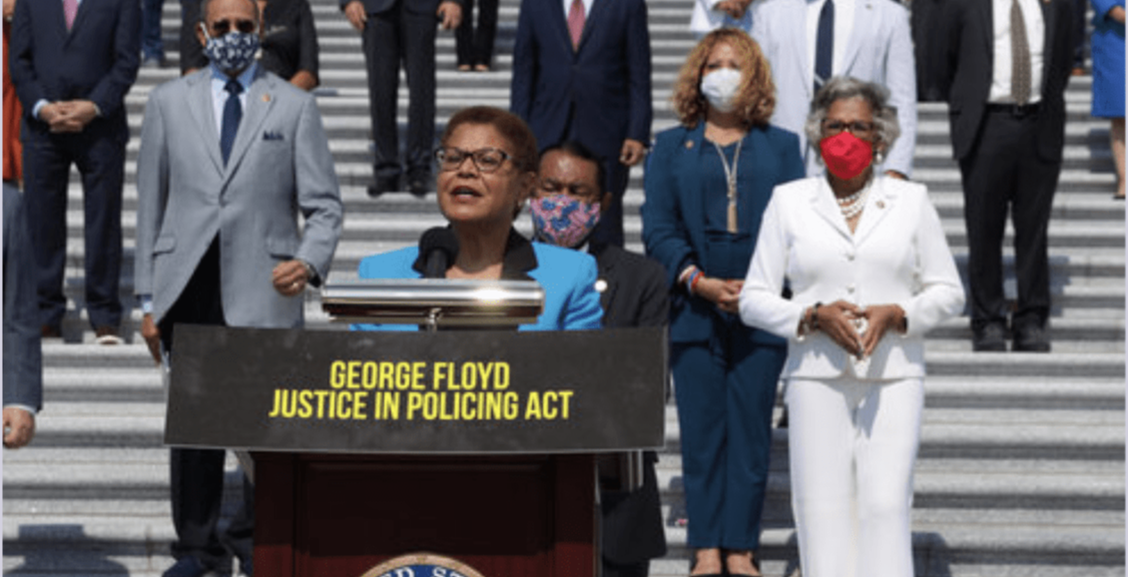

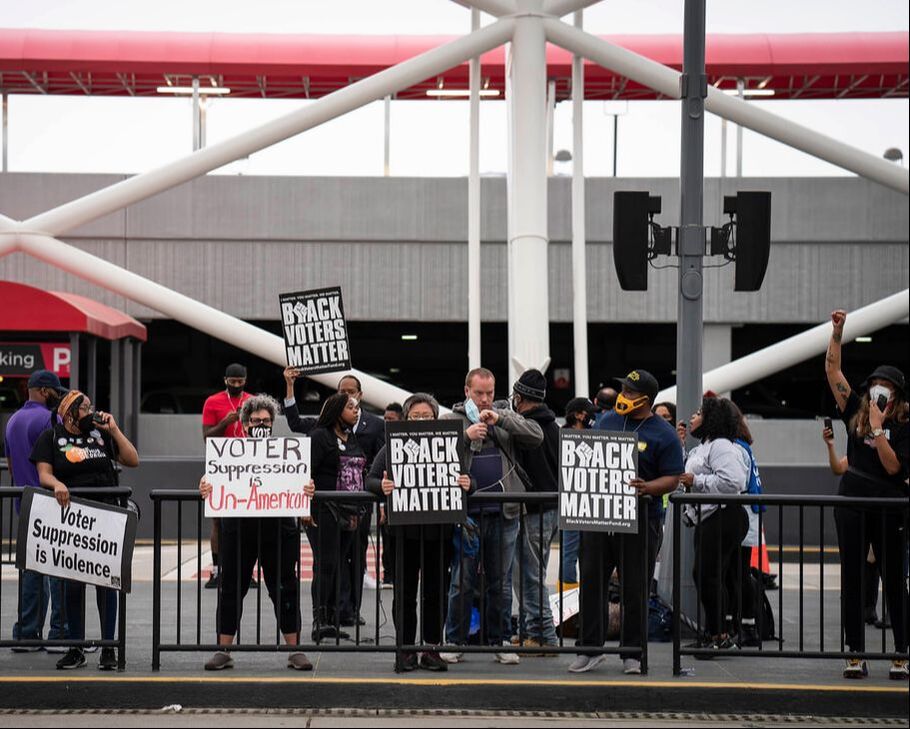

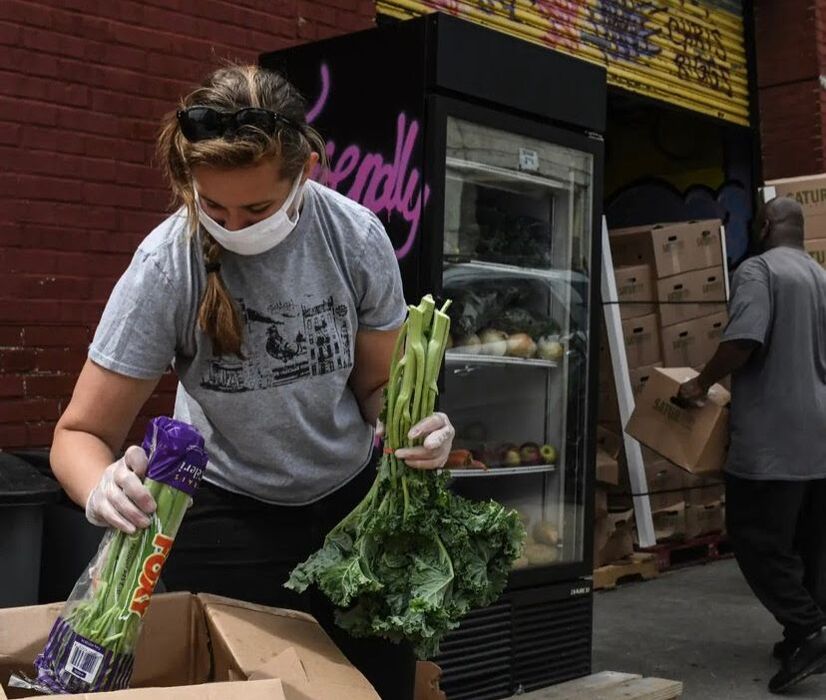
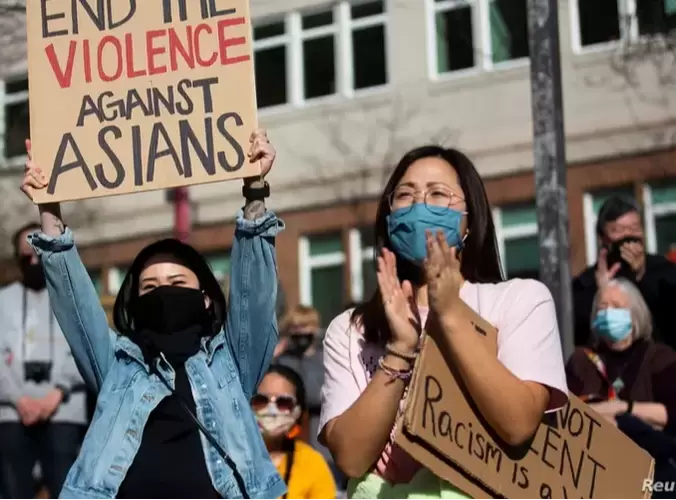
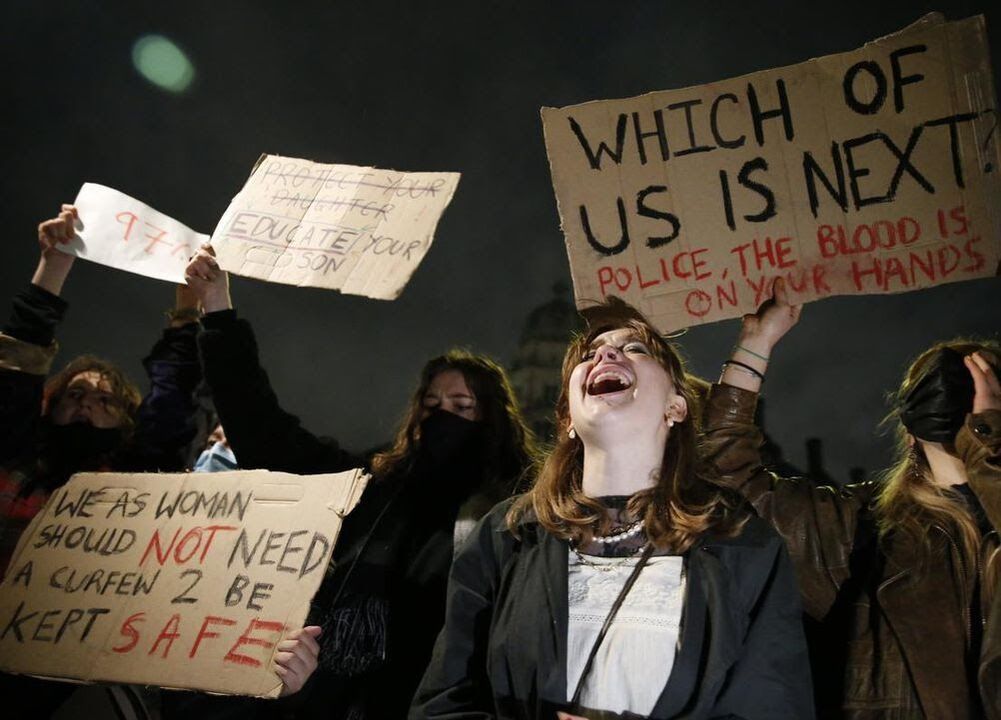
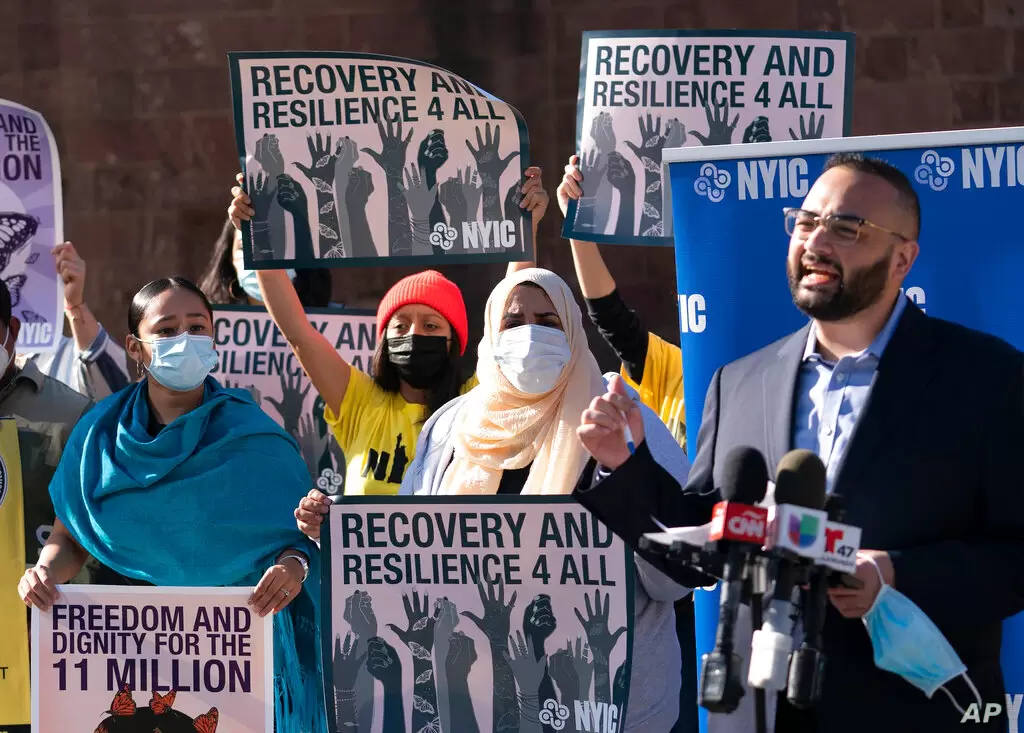
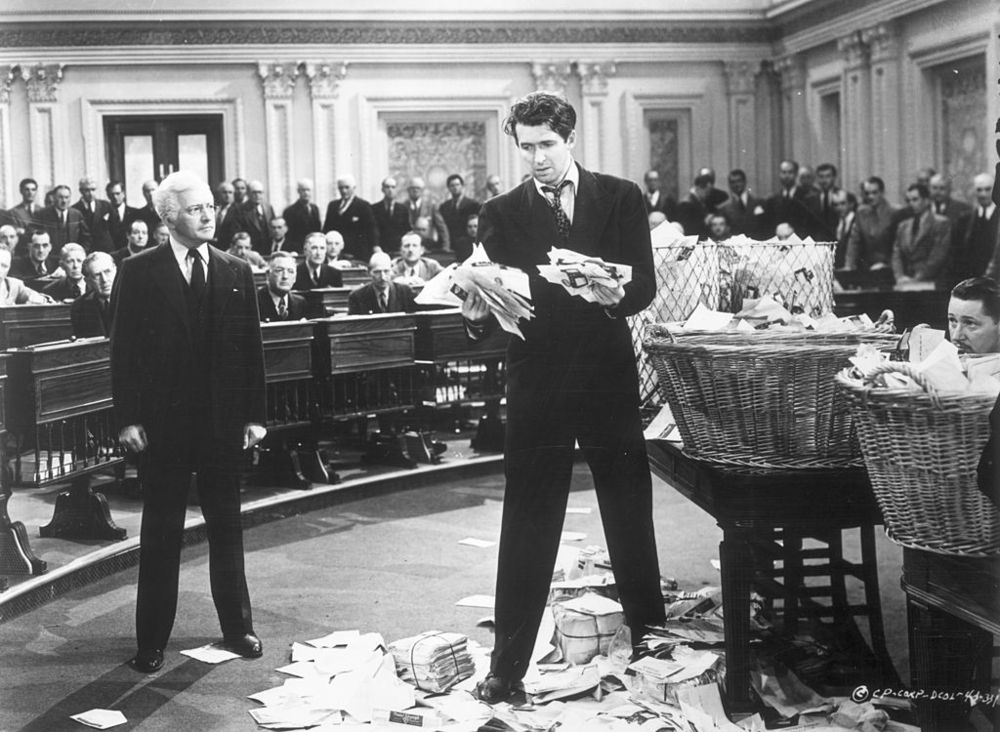


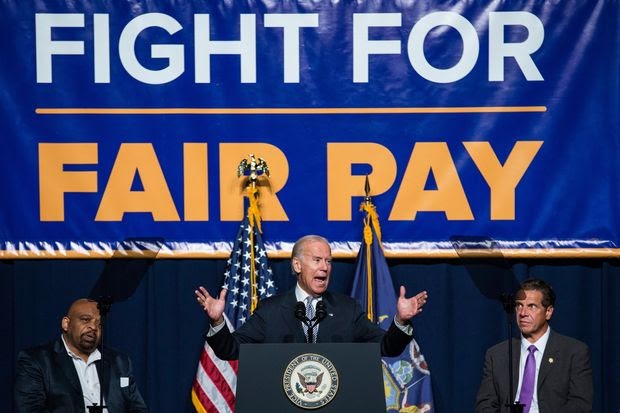
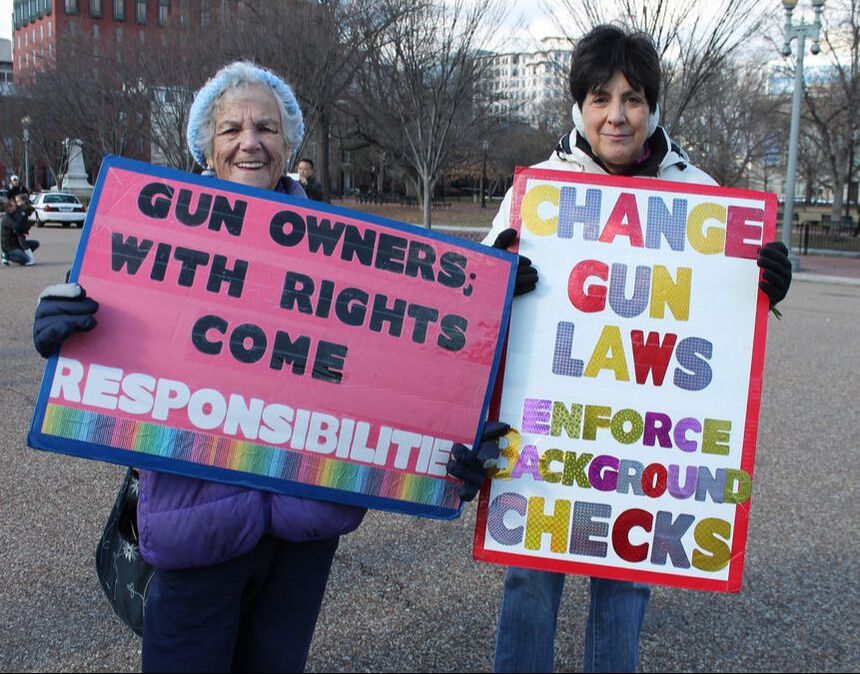
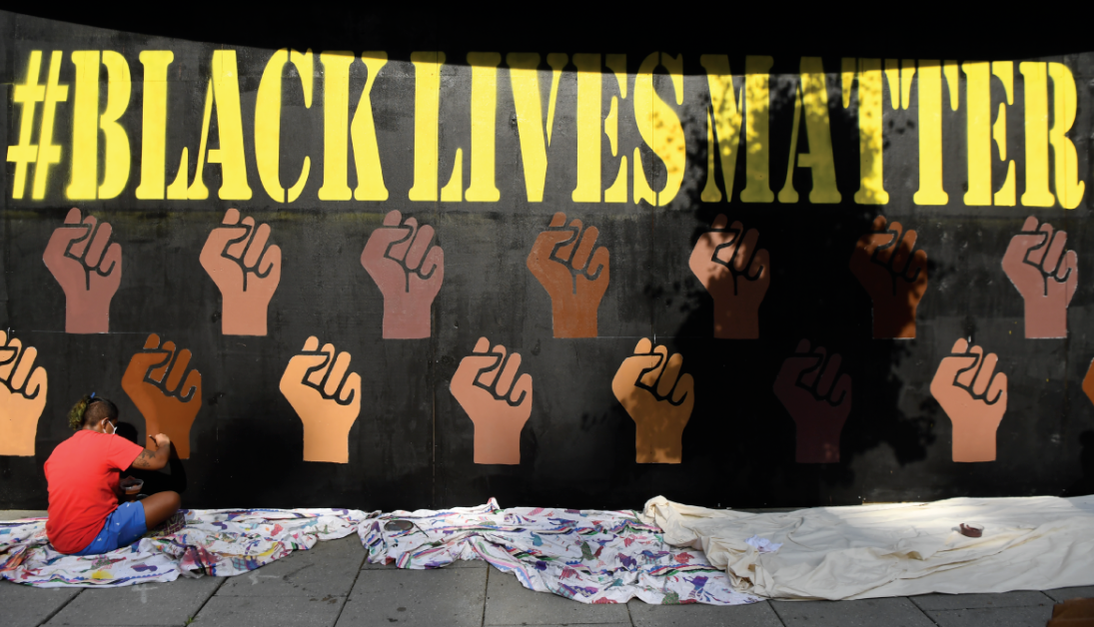
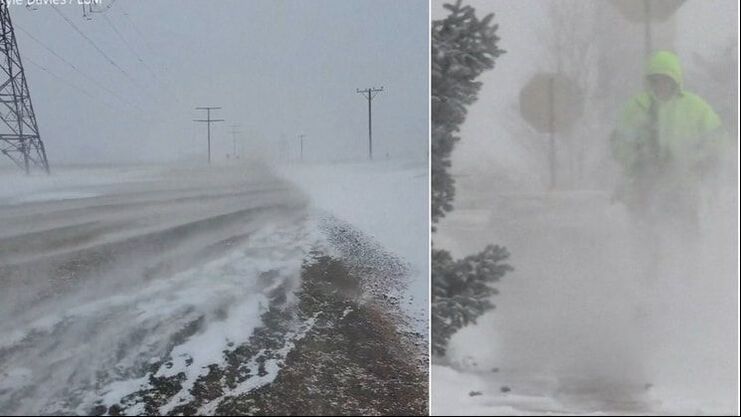

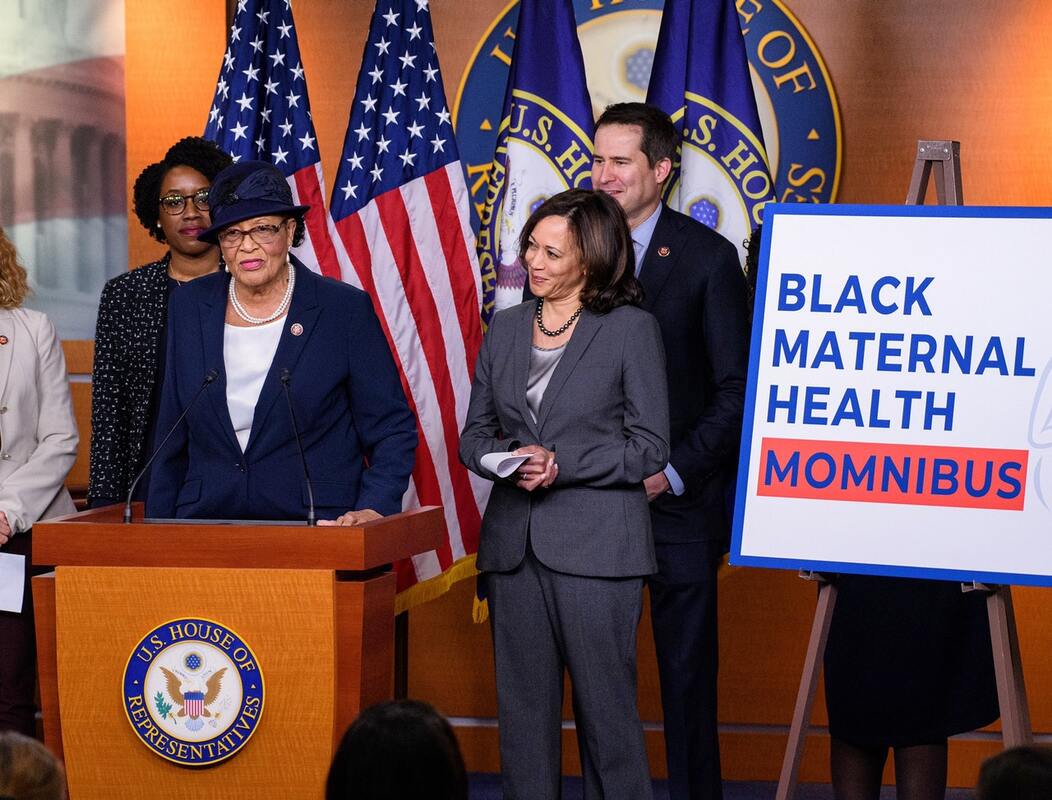
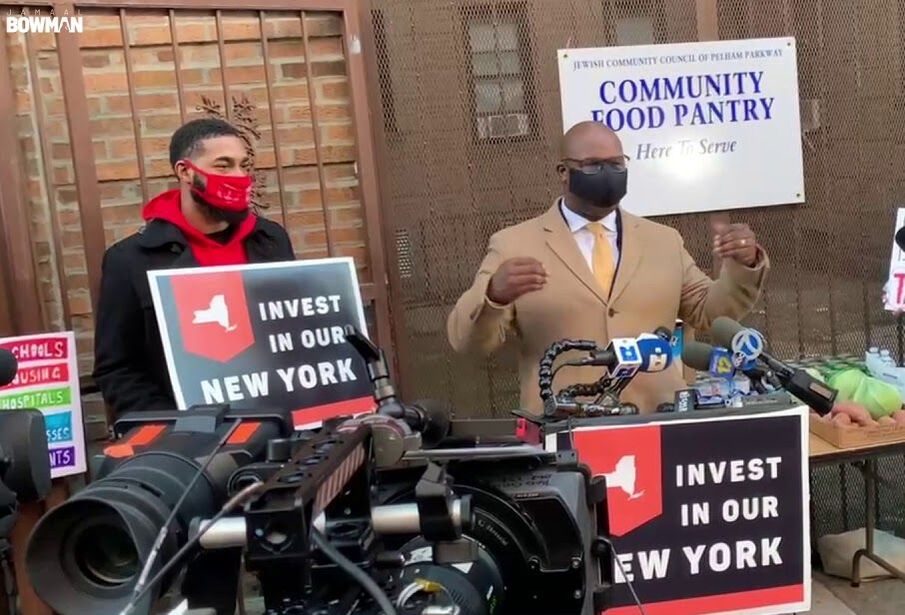
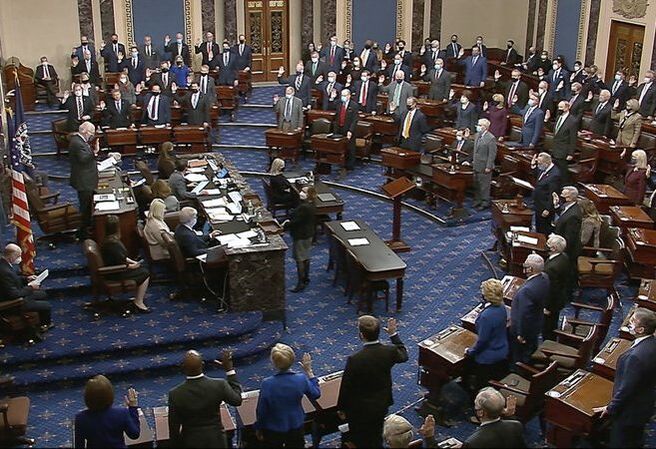

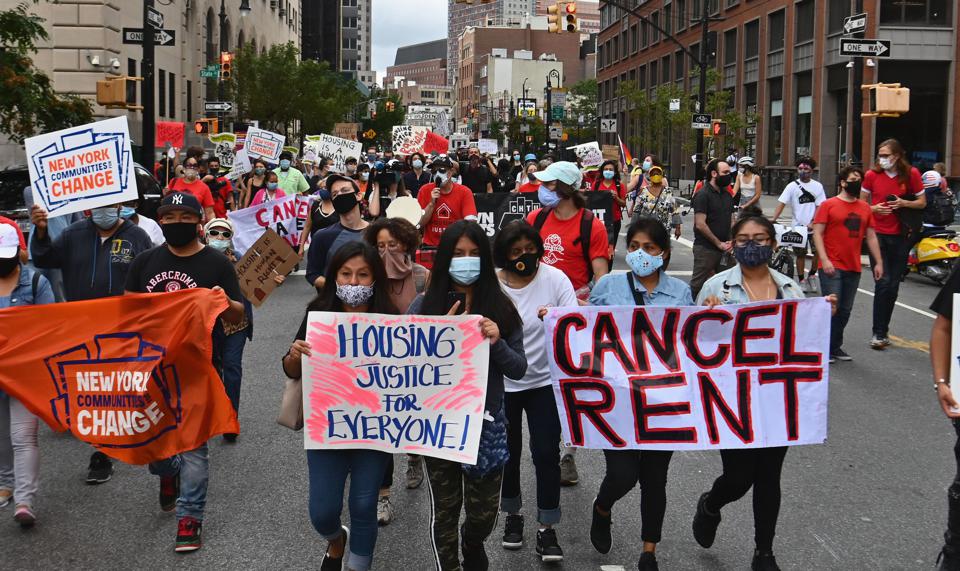
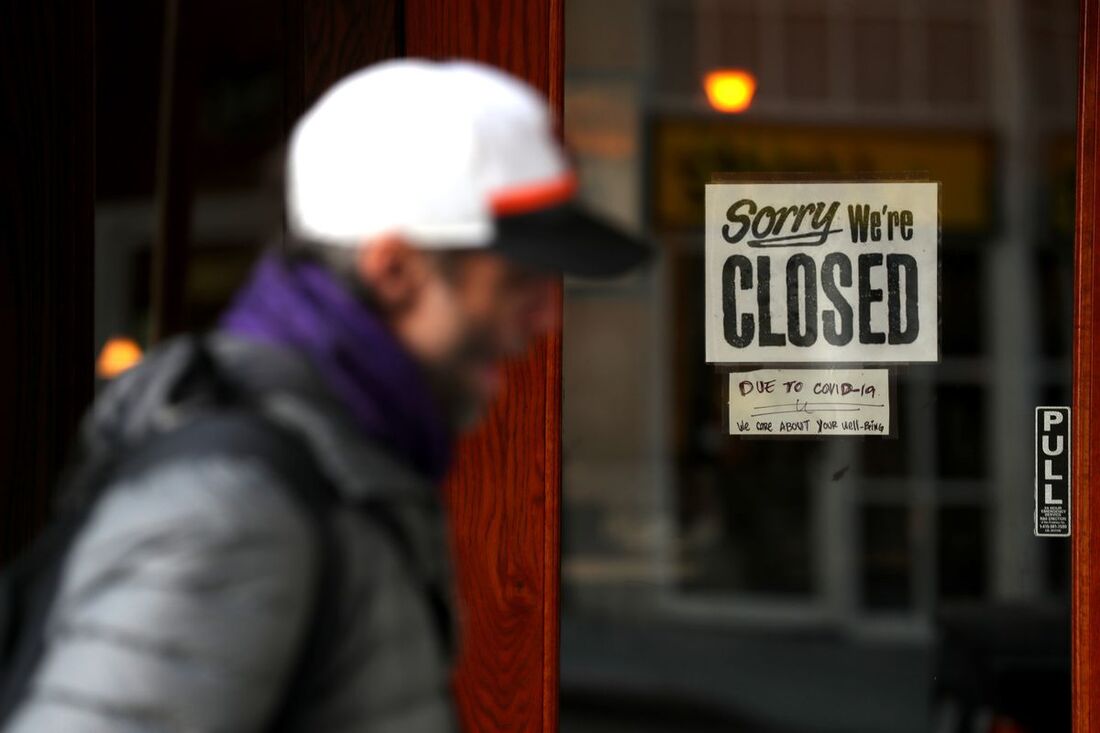


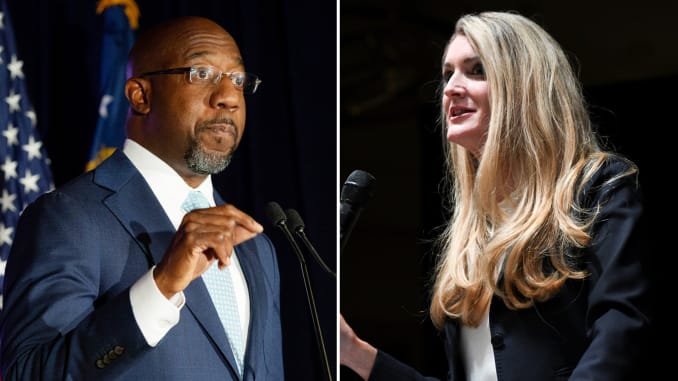

 RSS Feed
RSS Feed
